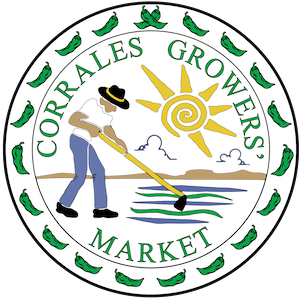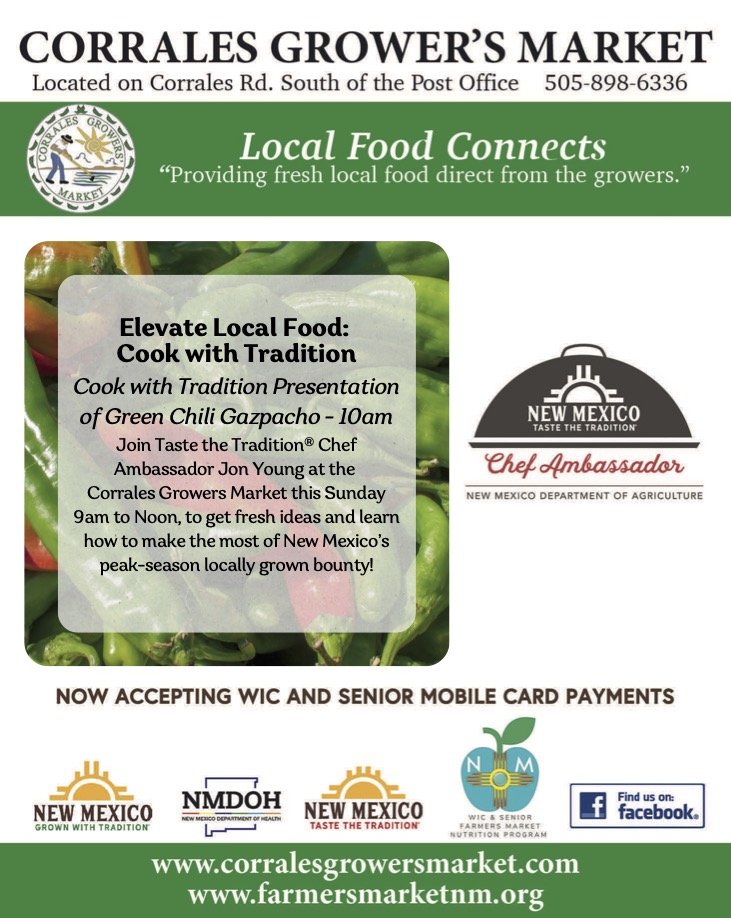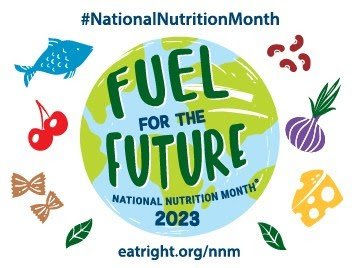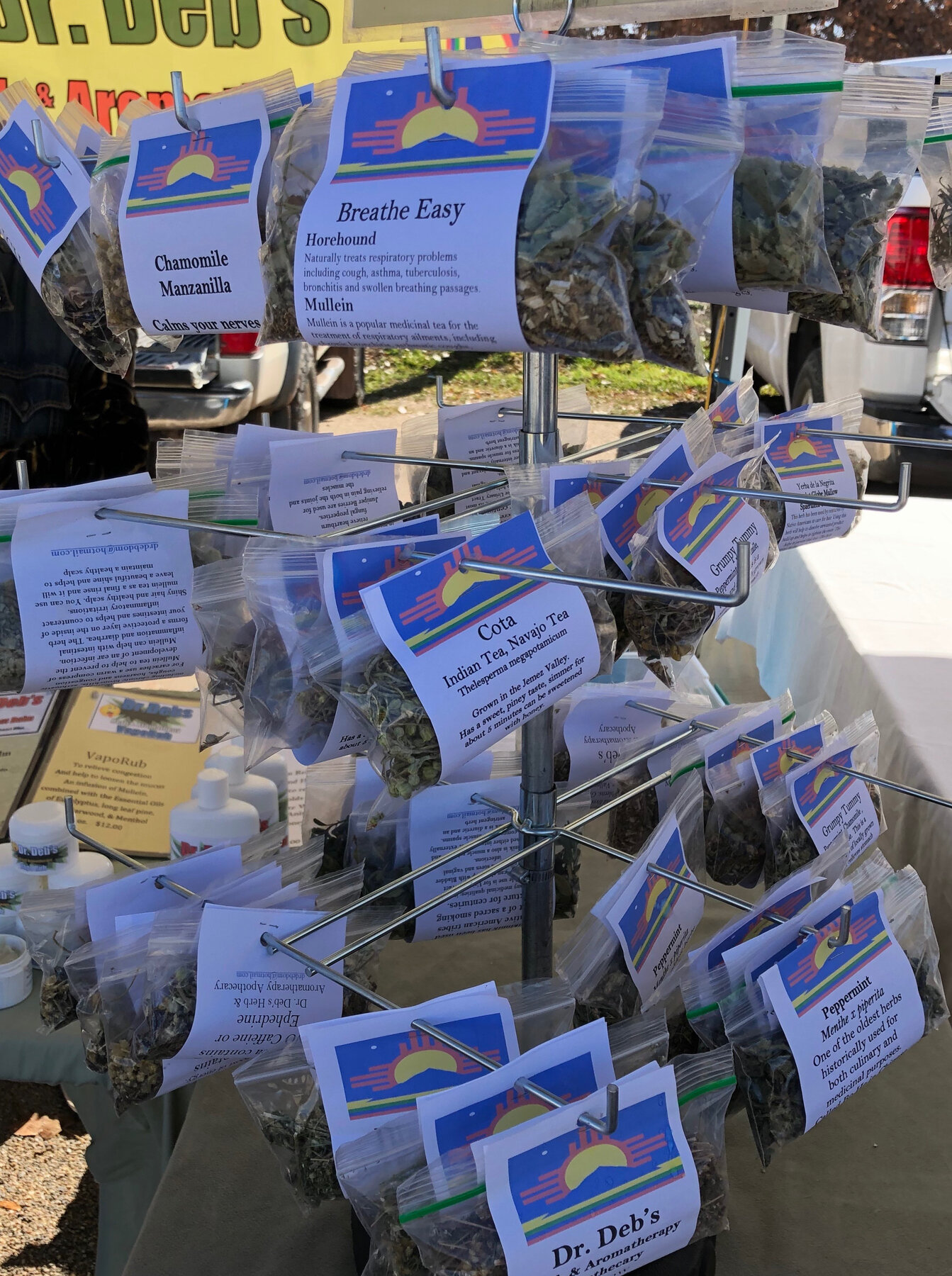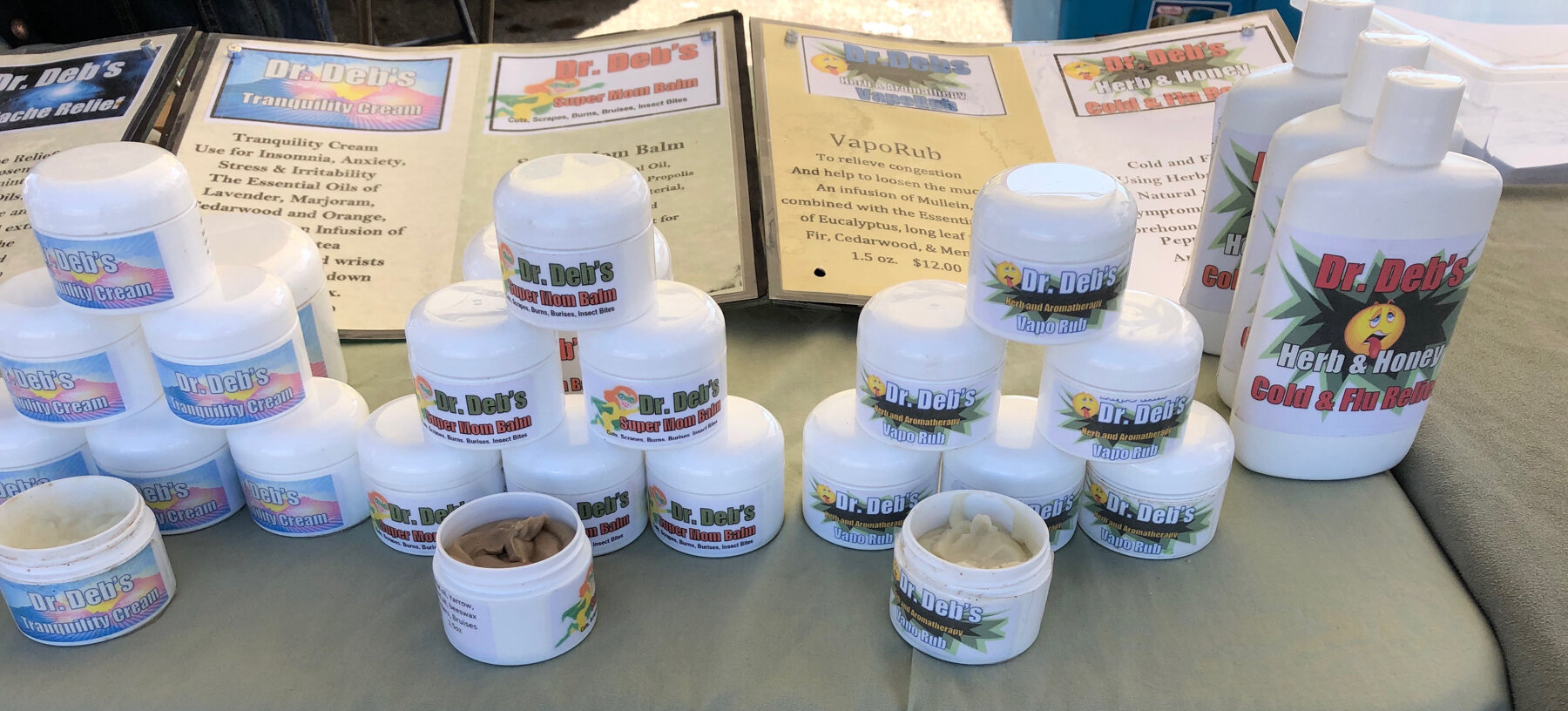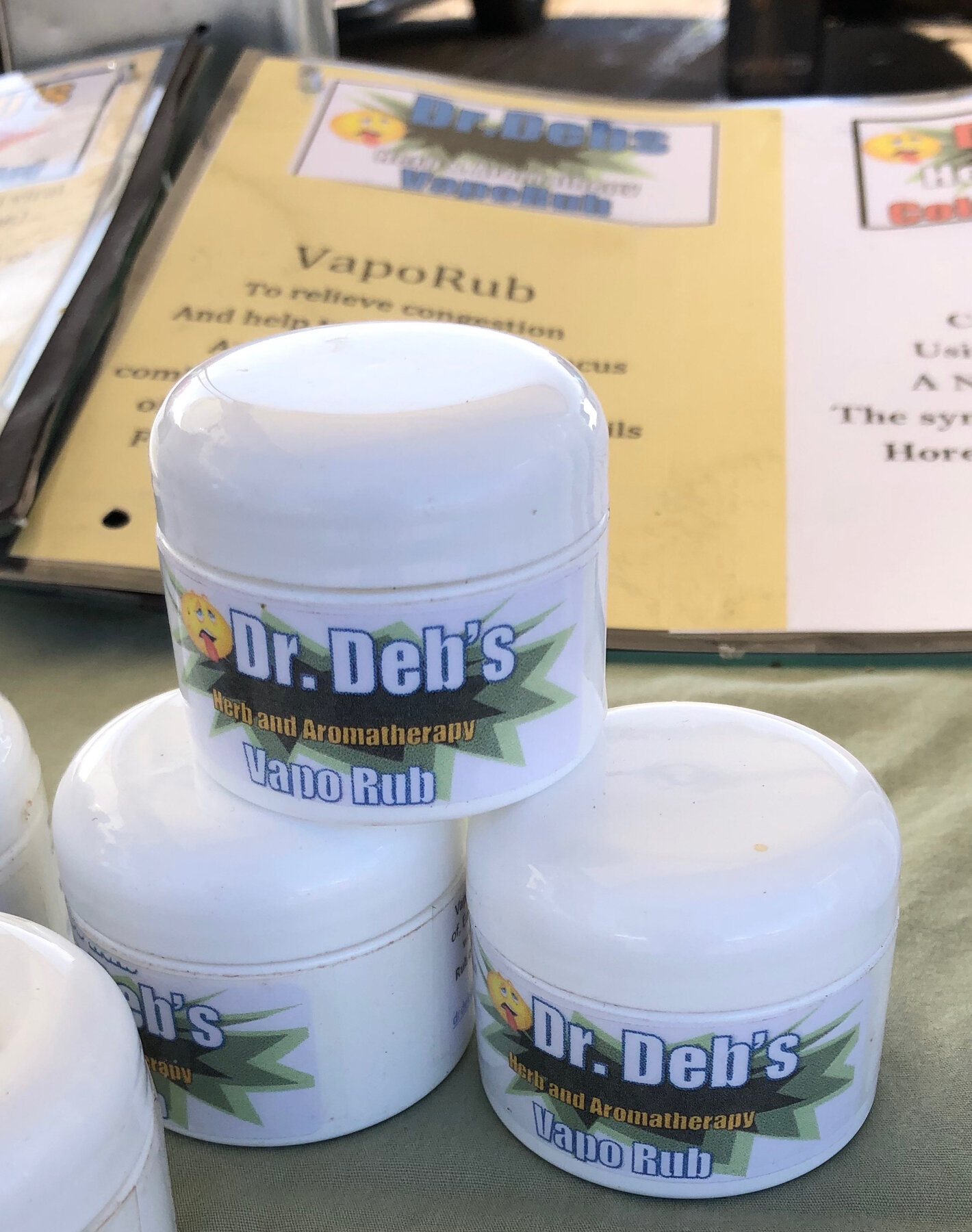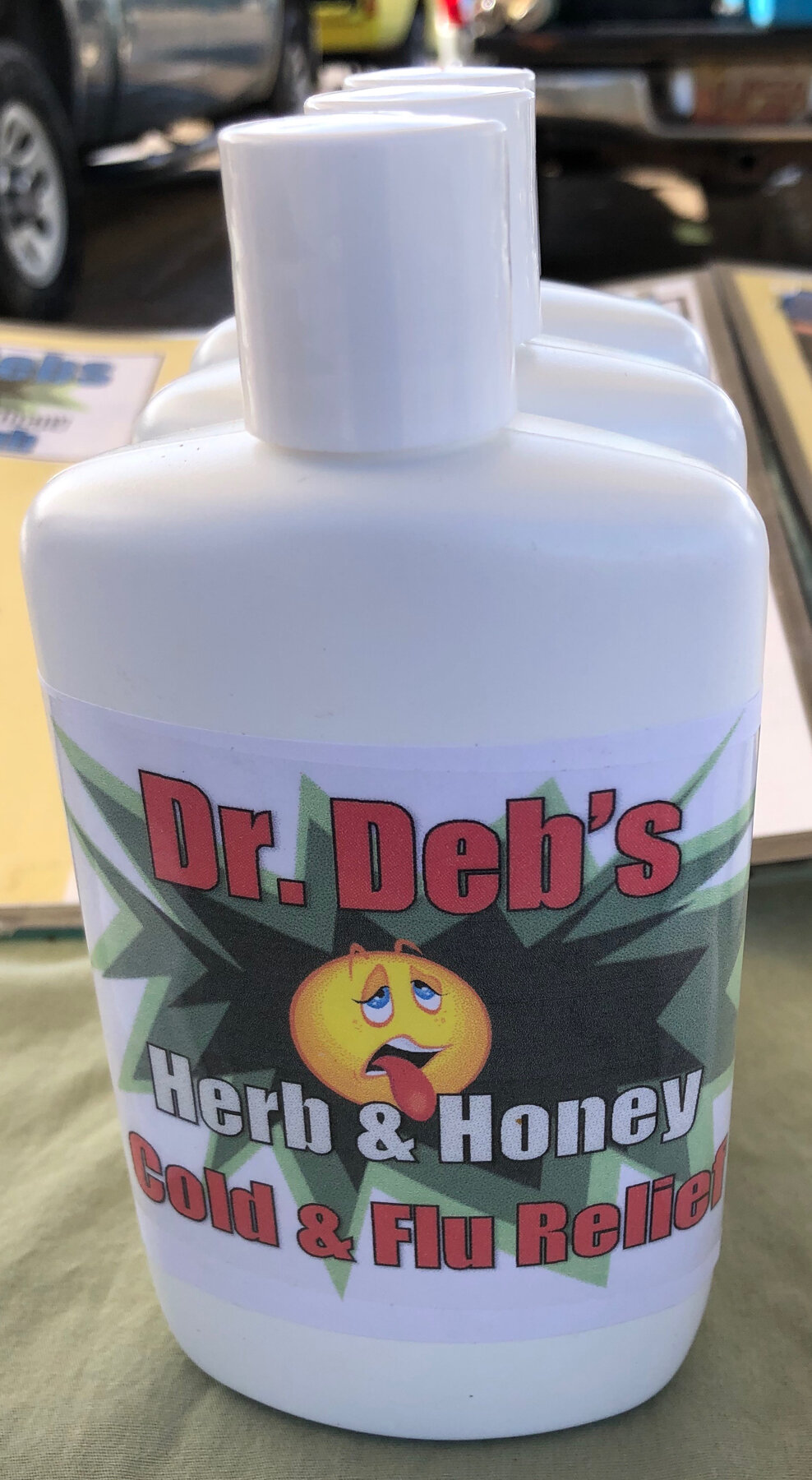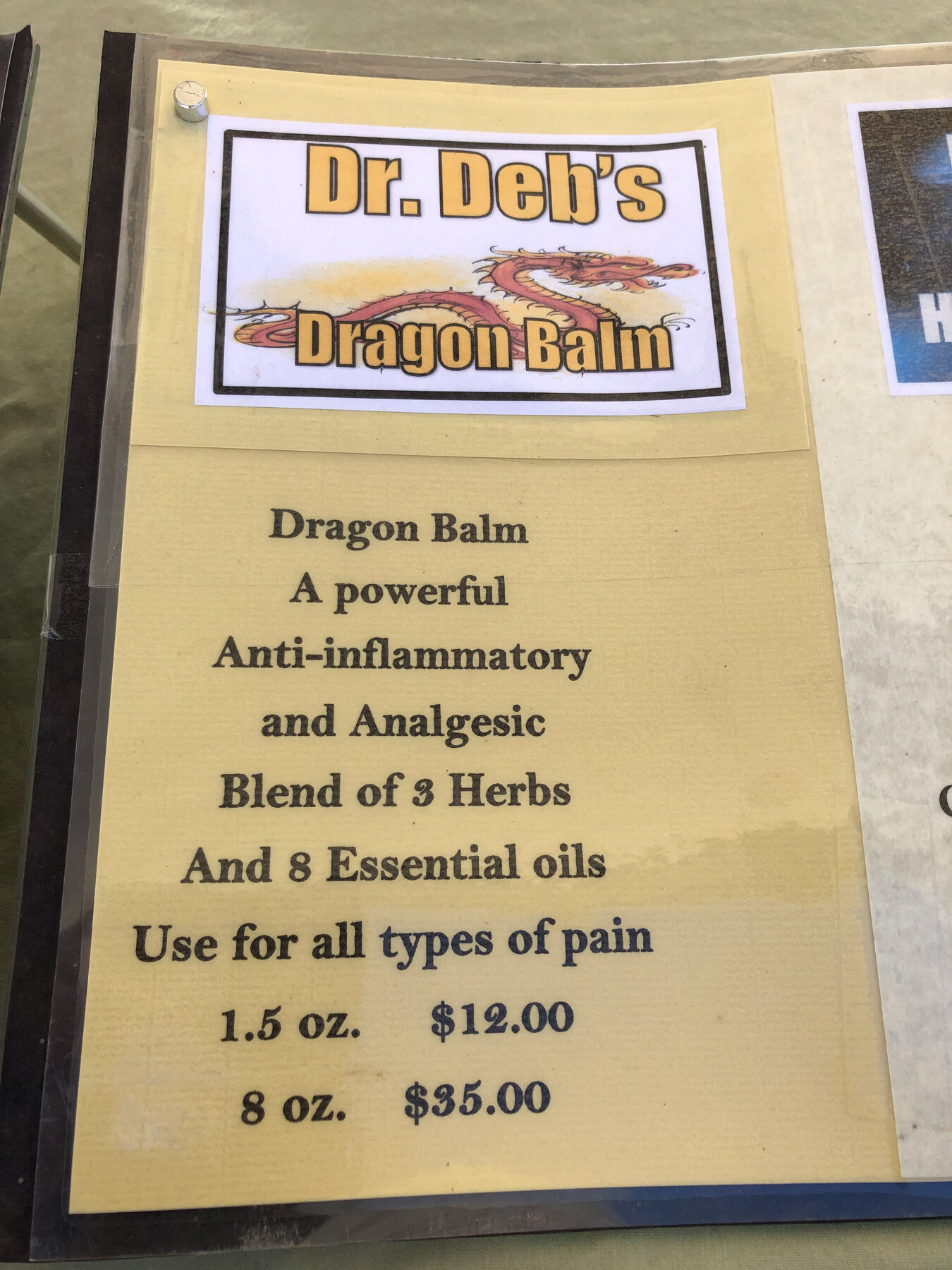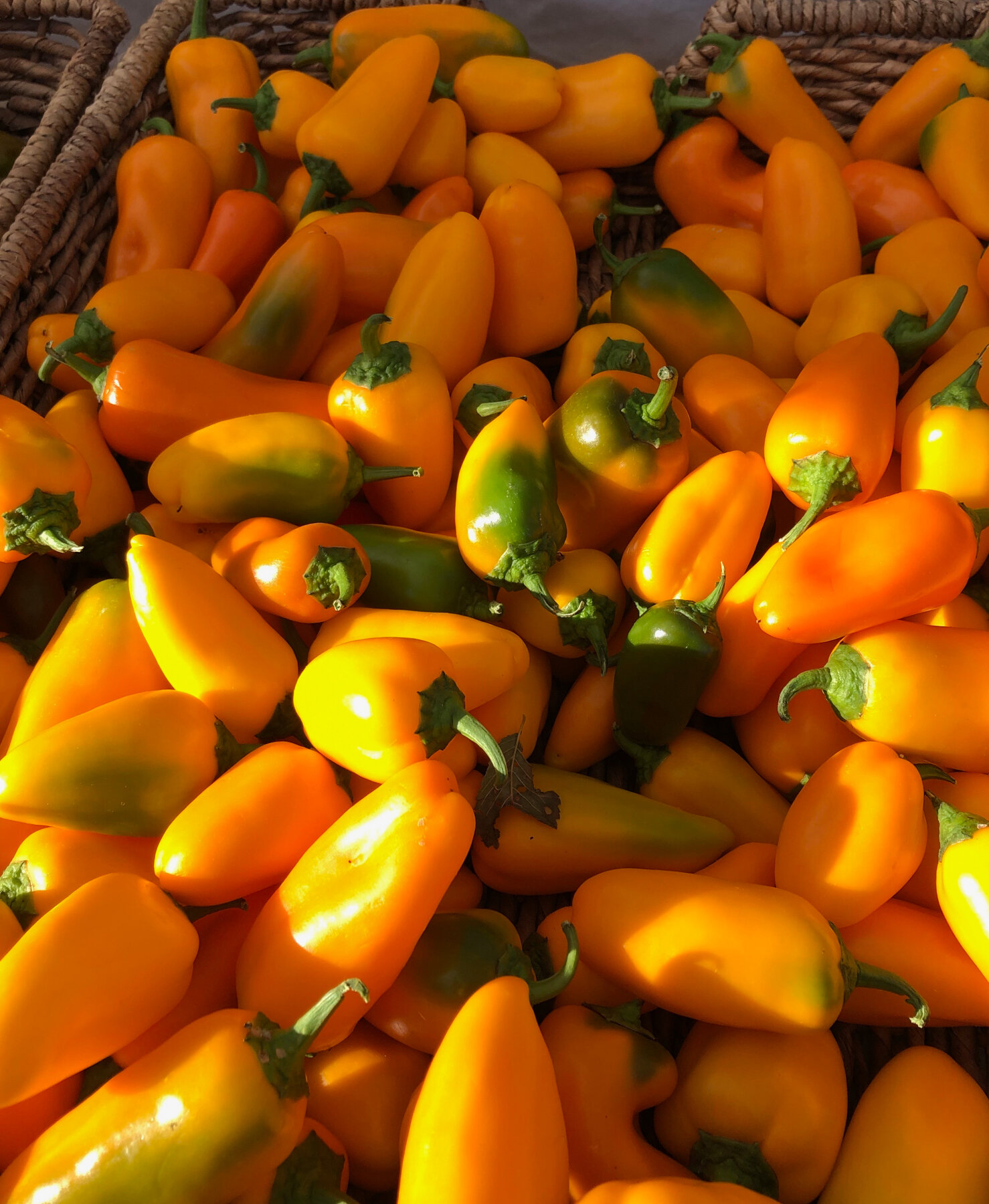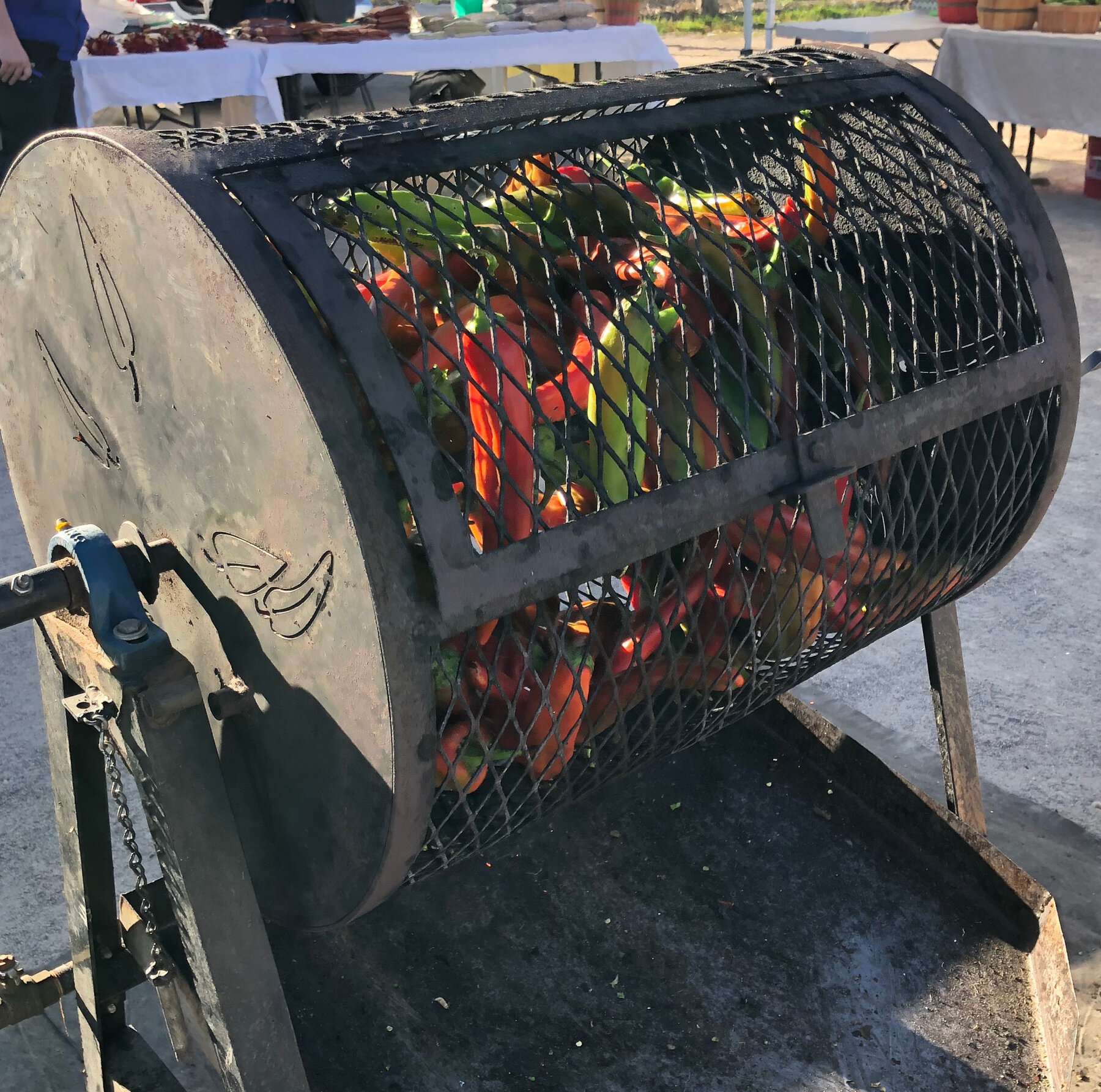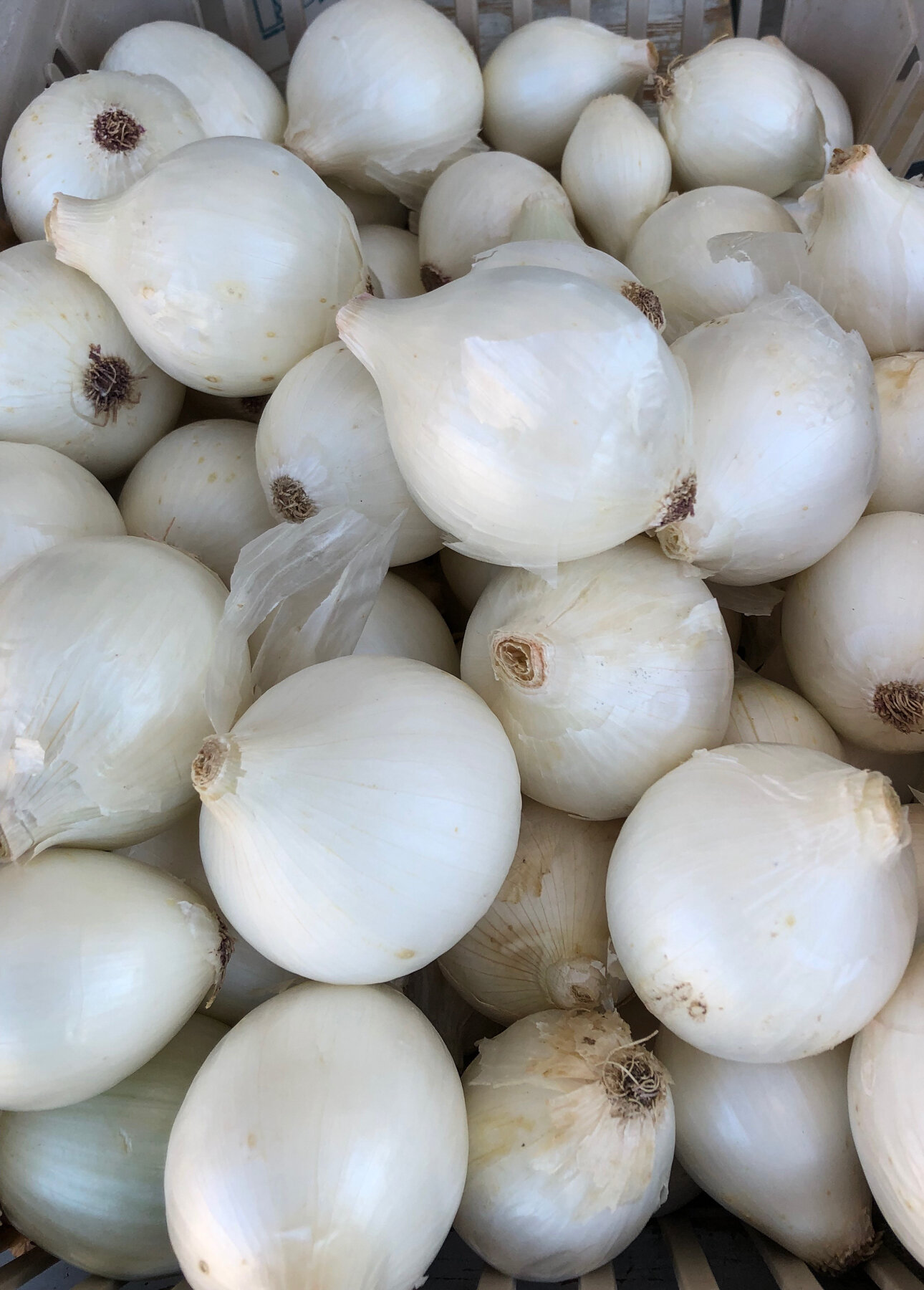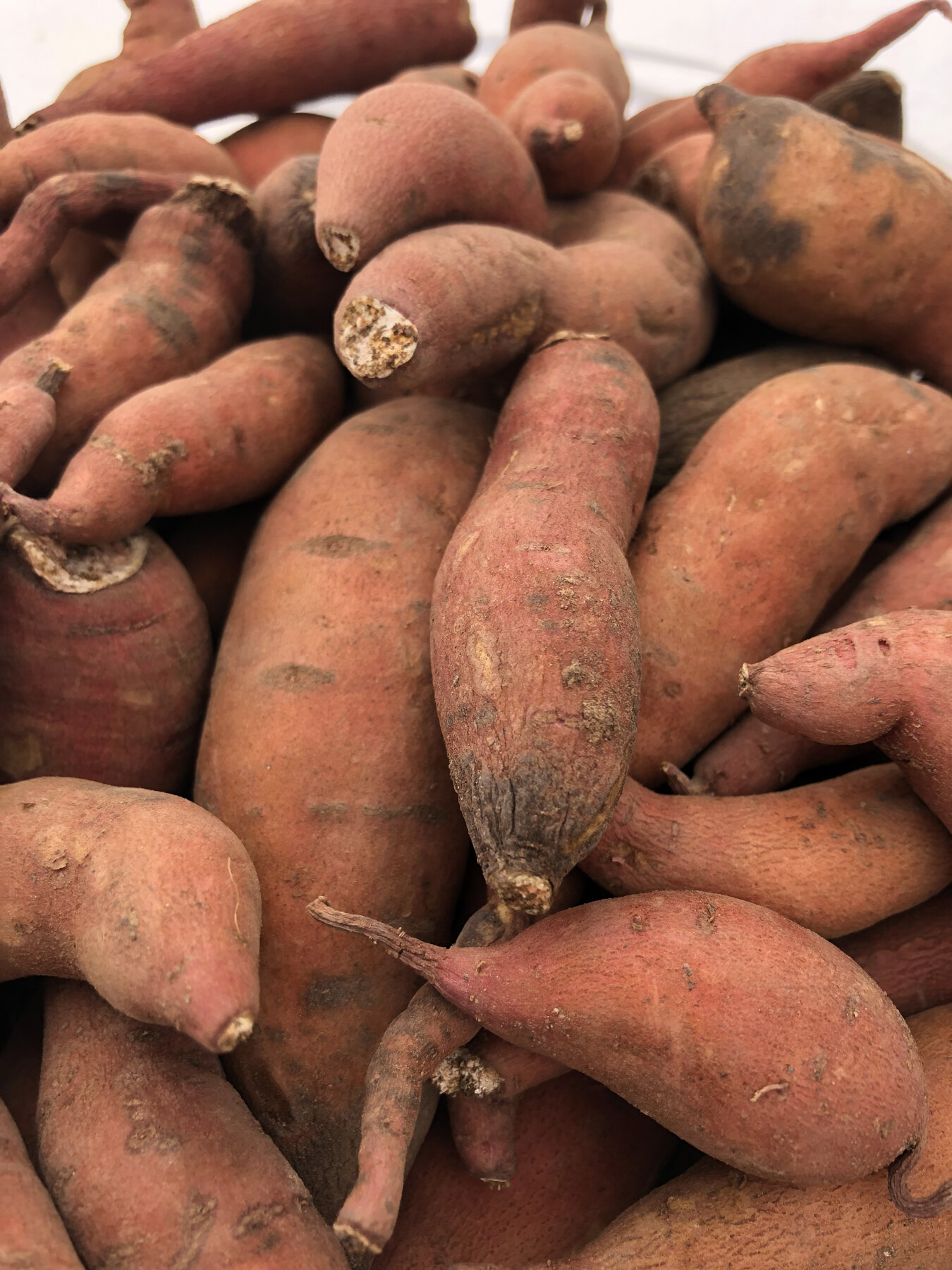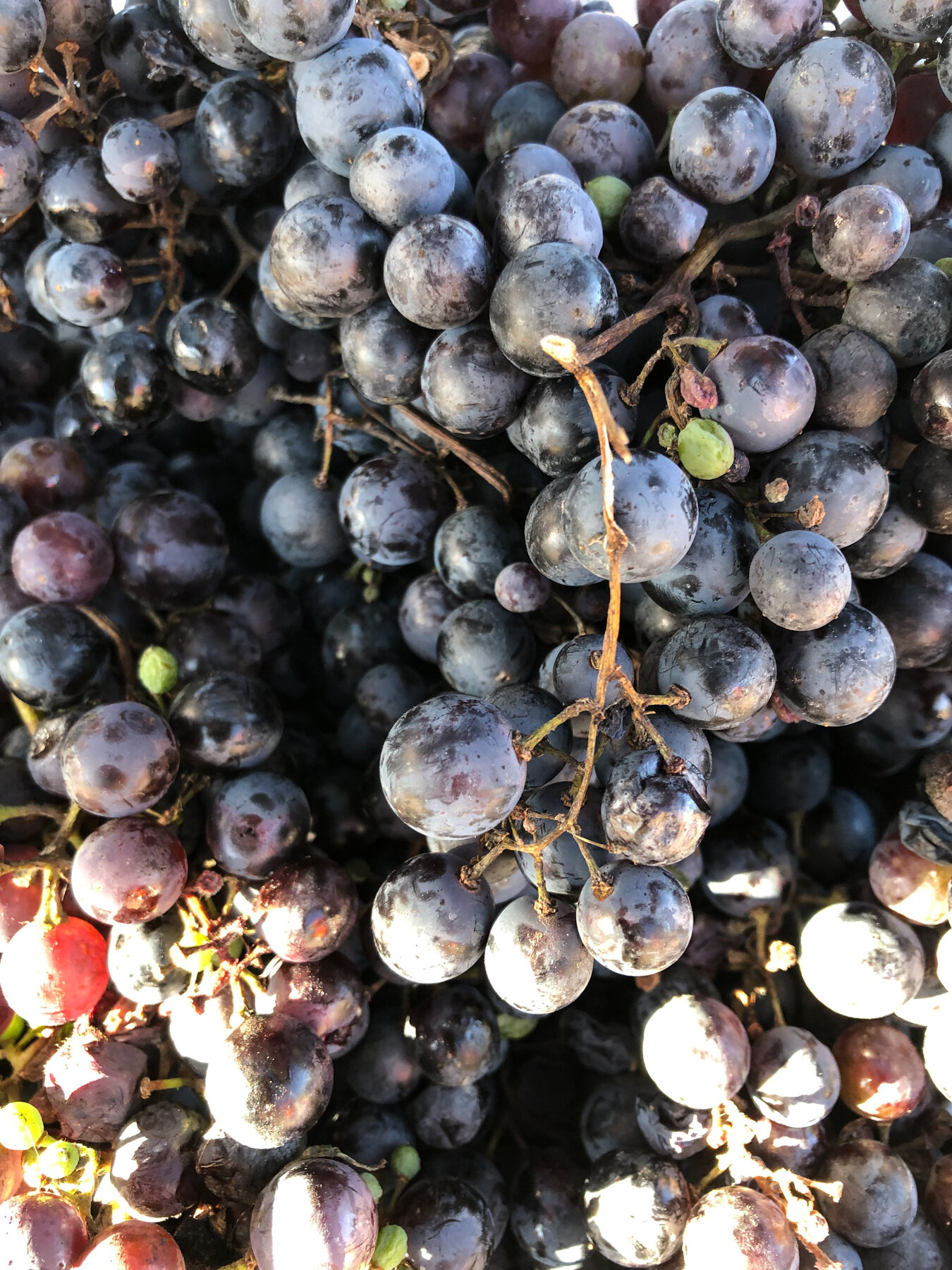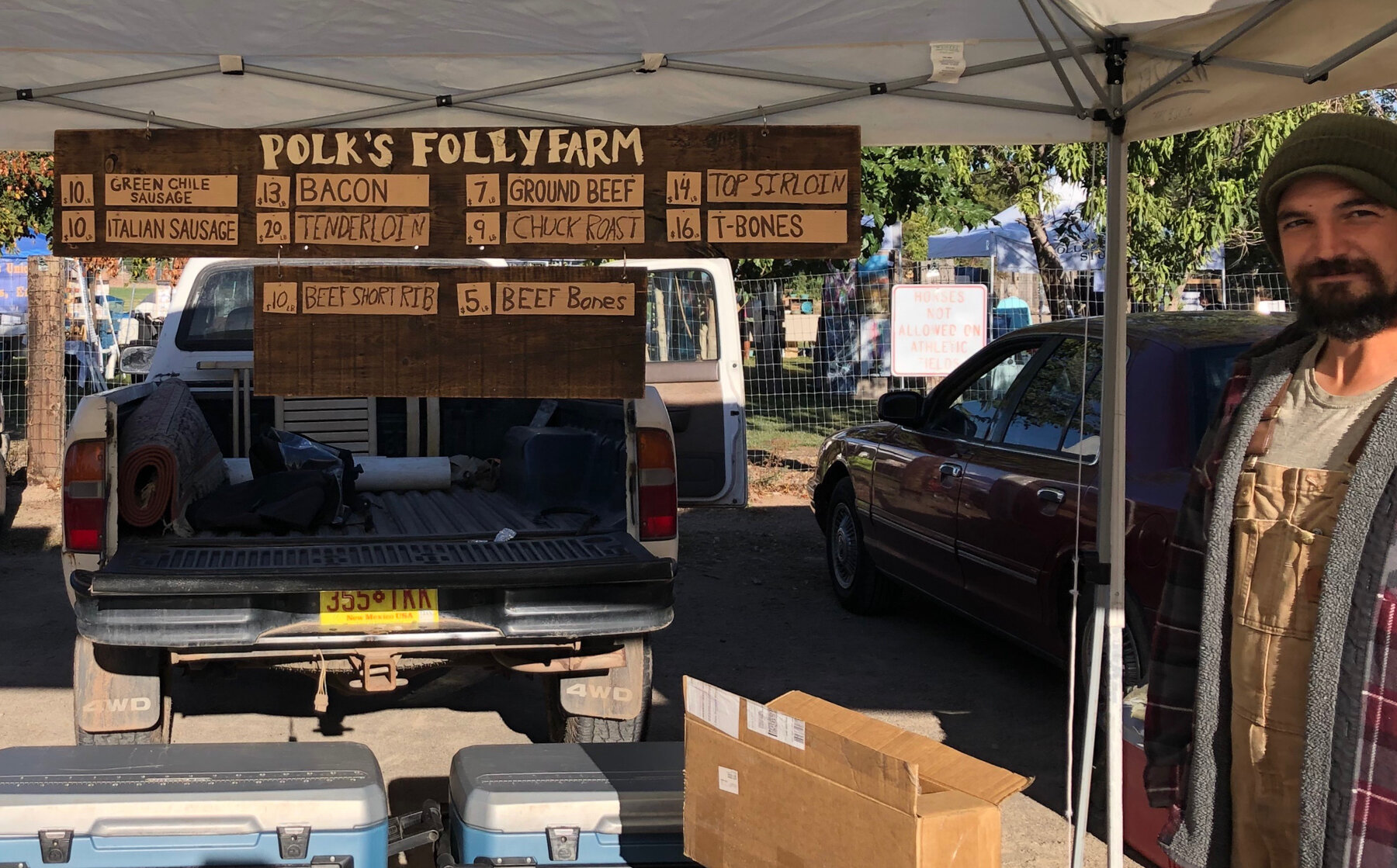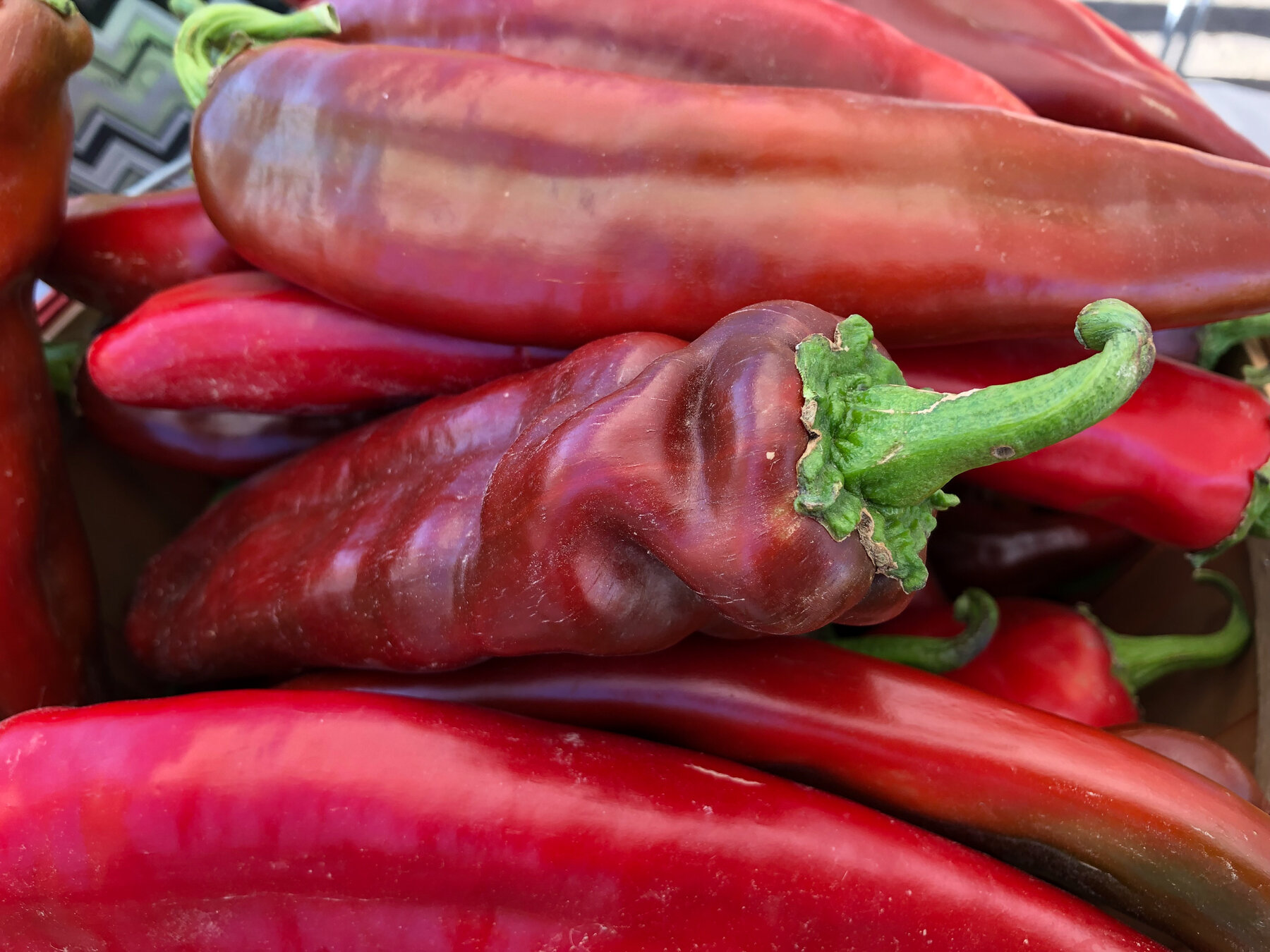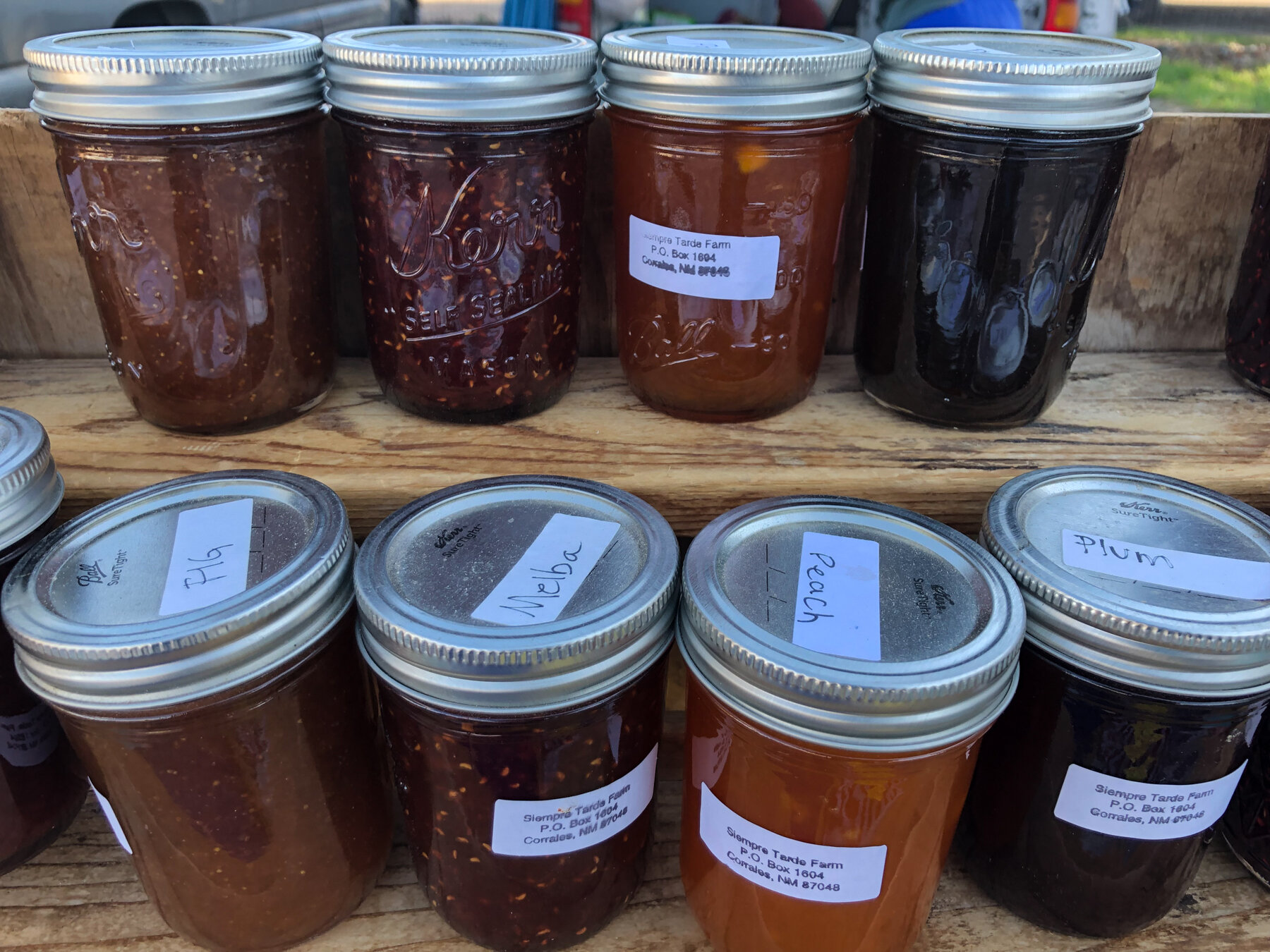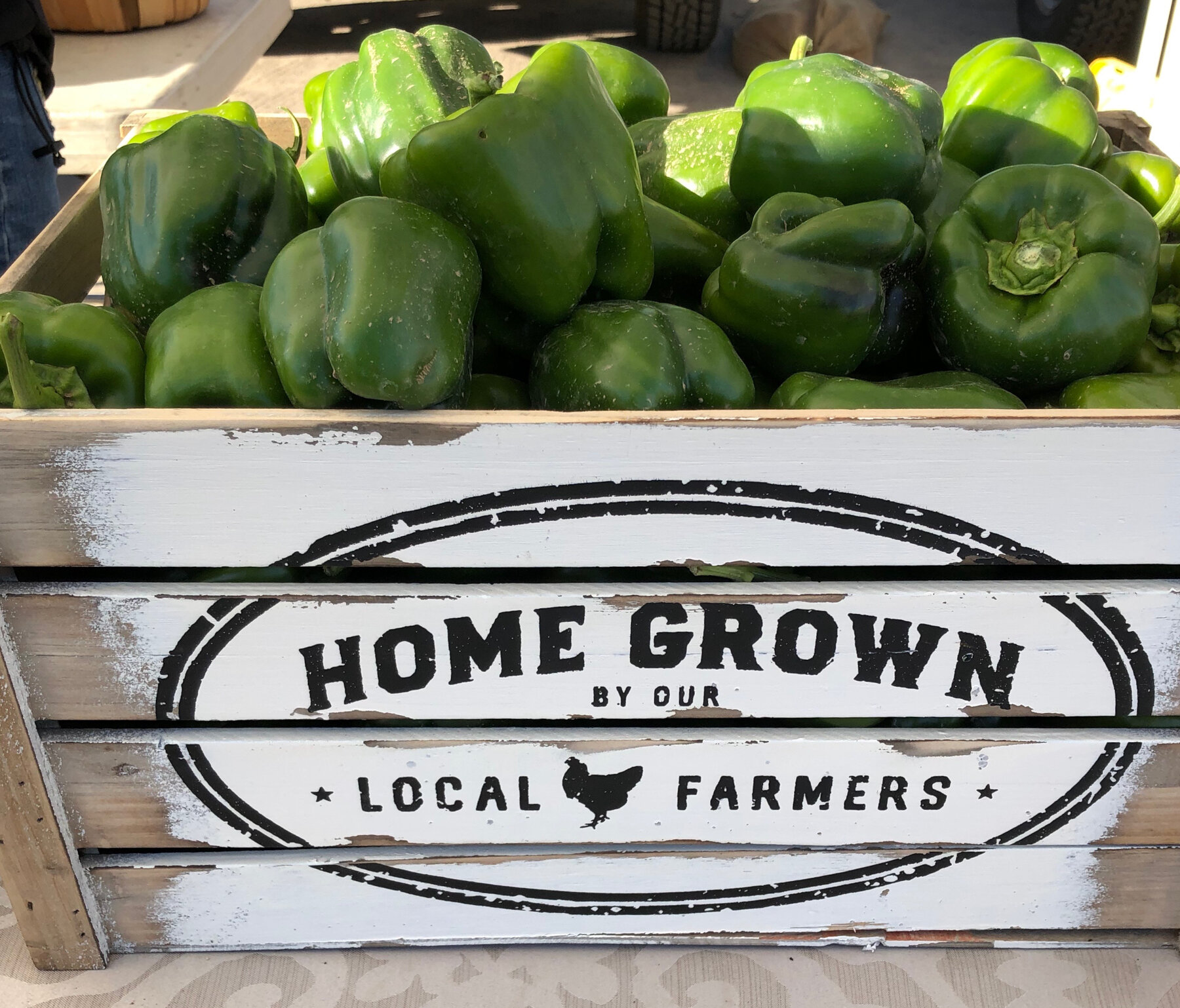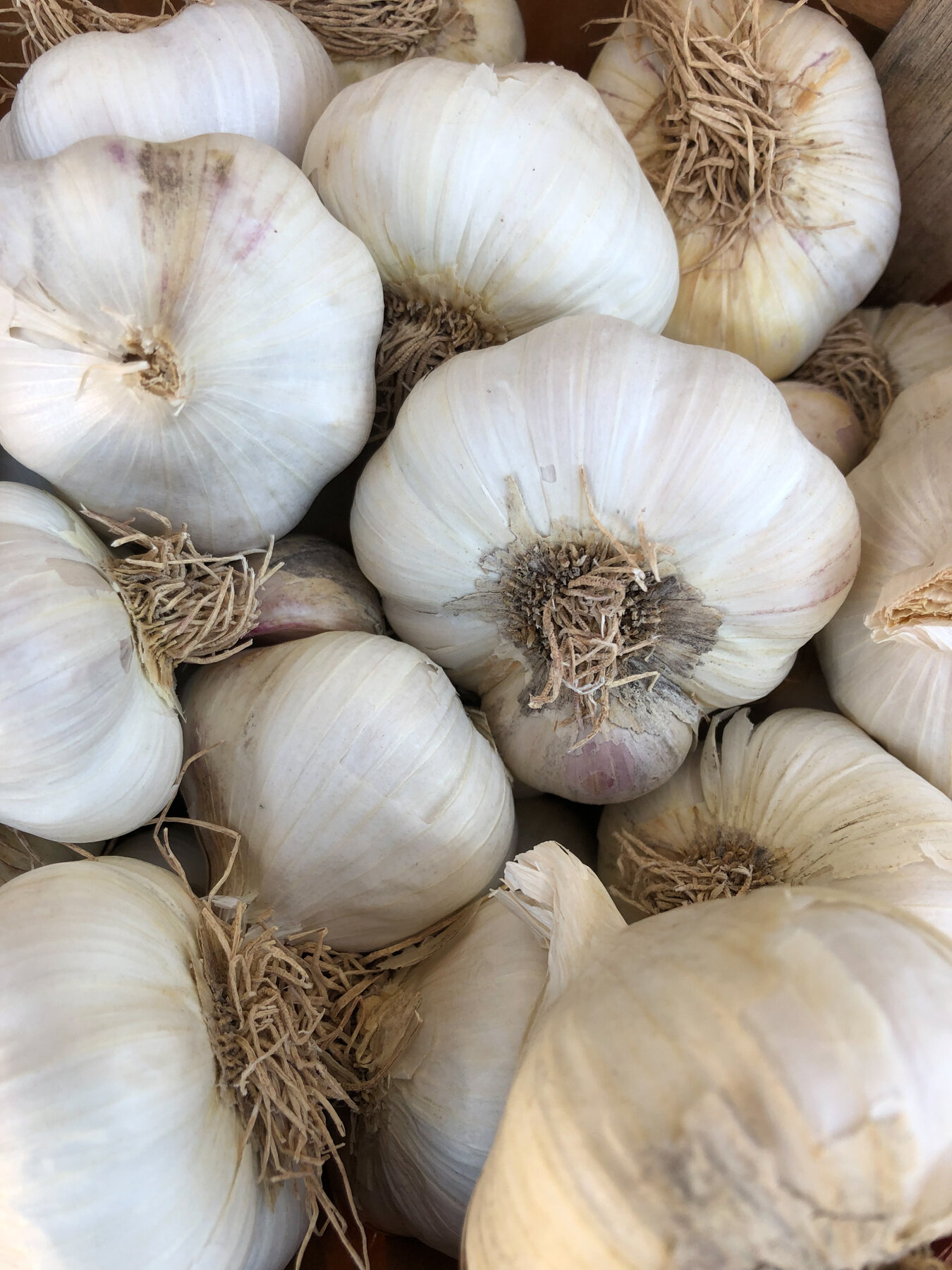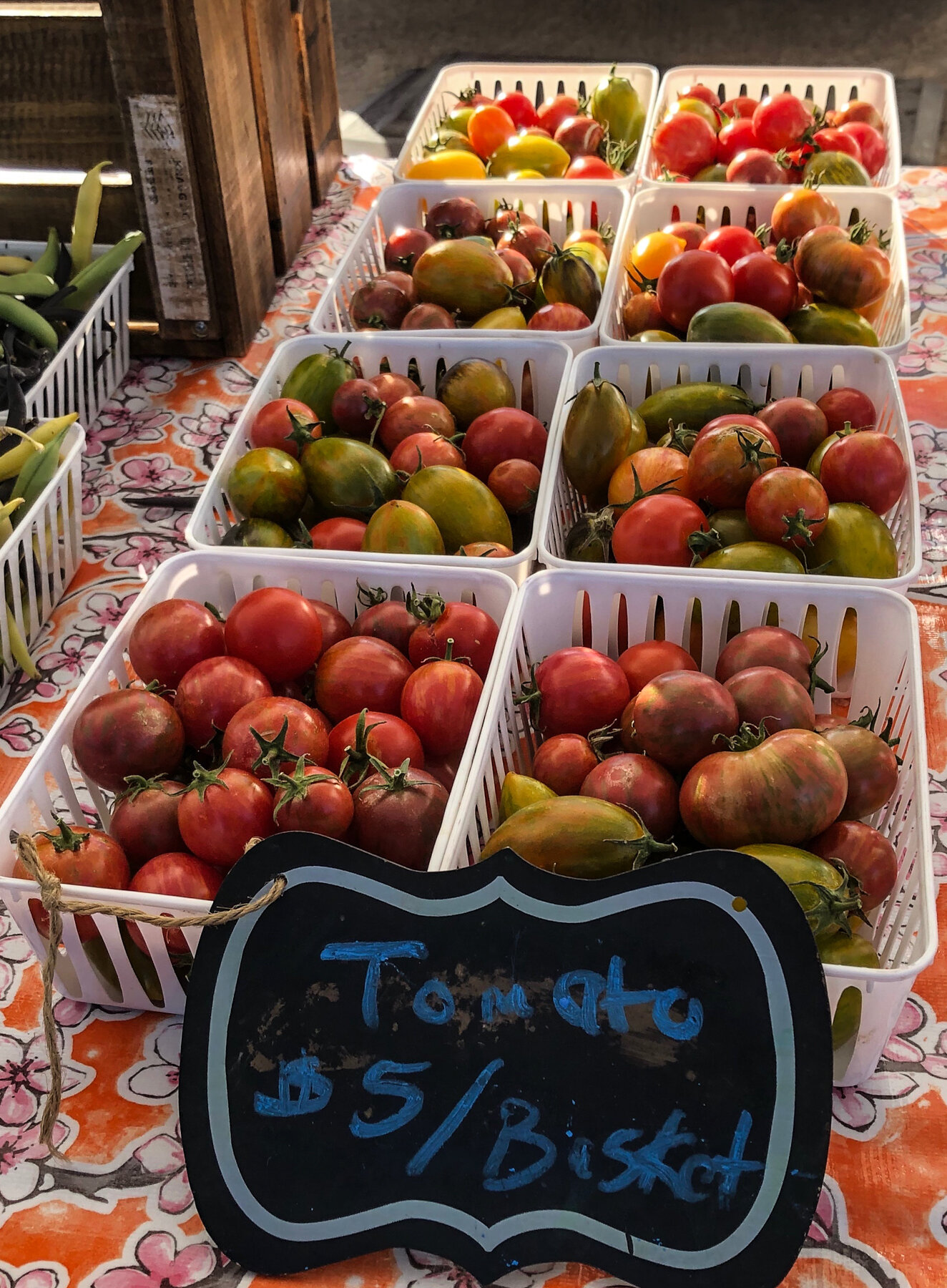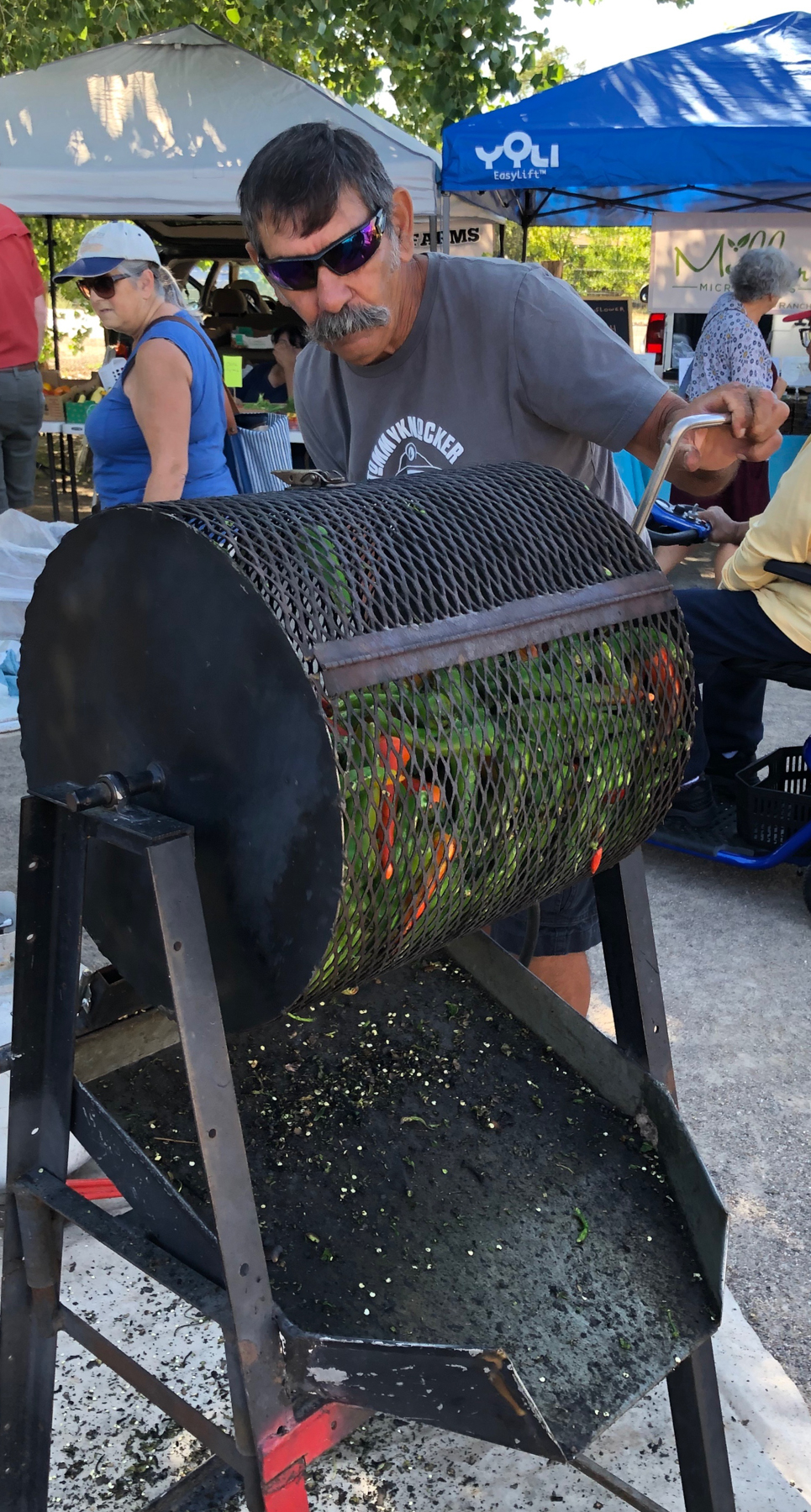Happy 4th of July!!
Hope you were able to make it down to the parade in Corrales on Friday. Here’s the float representing farms and local food in Corrales! See you at the Market on Sunday.
Farmer Highlight: Parenthetical Farms
May 26, 2025 | Ben Dickerson, Parenthetical Farms
Parenthetical Farms is a semi-urban (very) small farm in Corrales, New Mexico. I utilize natural techniques to grow seasonal fruits and vegetables in concert with the local ecosystem. I grew up in the North Valley but left New Mexico for 20 years, during which time I received a MFA in Poetry, but I was always working and/or living within food systems. After many years of bike rides through the conventionally farmed fields of Oxnard, California, watching crop dusters, breathing in chemicals and seeing the runoff pollute the local waterways and ocean, I knew there had to be a better, healthier way for our communities to thrive. Soil health, soil science, and natural methods of farming became a passion, so this past winter when the opportunity arose to join the Corrales community and transform a horse property into a small farm, I dove in.
So, why Parenthetical Farms? In our growing and developing communities in the Middle Rio Grande Valley we have displaced local agriculture. I grew up surrounded by grazing pastures and vegetable gardens, but when I returned to New Mexico in 2016, all of those fields and gardens had been replaced with homes and businesses. I have worked in compost, soil, and regenerative agriculture for the last decade throughout New Mexico, and even in that short time I have seen our best farmland parceled off, farmers displaced, and our communities' ability to sustain and feed themselves slowly diminish. Parenthetical Farms, on 2/3 an acre in a backyard, is a re-interposition of local food production back into the neighborhoods where agriculture is being displaced by development. For me, farming is about community. I work without chemicals and plan the farm to work in concert with the environment, working with the land for mutual benefit, and helping feed my community.
Farmer Highlight: New Mexico Prickly Pear Jelly
New Mexico Prickly Pear Jelly is a woman-minority family-owned business. We farm one of the most bountiful cactus fruits that the land of enchantment offers. Our farm is set in the East Mountains of ABQ, where cacti grow abundantly because of the rich soil, sun, and snow/rain (when it comes). For the last 8 years, our family has planted and grown various Prickly Pear Cactus from which we make jams. Our pre-existing flavors are prickly pear, prickly pear with oranges called orange marmalade, and prickly pear with hatch green chile. This year, we launched our newest flavor called Desert Sun. This plant's pears are light red outside and look like white peach inside. This variety of Prickly Pear is sweeter (naturally) and has a distinct flavor and texture, unlike the original fruit. Once processed, it turns yellow, like our beautiful desert sun, thus the name.
Because we love the environment, we are a zero-waste company. This means that after cooking, we have waste, which consists of skin and seeds. From this, we make vegan soaps. In this manner, nothing goes to waste.
Sustainable growing in the High Desert Southwest. Saturday, May 17th during ¡Viva Corrales Days!
Discover the beauty and innovation of sustainable growing in the Southwest! Stroll through Corrales properties that showcase eco-friendly practices, water-wise landscaping, and creative solutions for thriving in our unique environment.
Explore beautiful gardens and one farm designed with sustainability in mind
Learn tips to reduce work, save money, and grow smarter
Attend post-tour educational talks at the Corrales Library, 9AM-2PM
See how a Corrales farm uses sustainable practice to produce a variety of edible crops.
¡Viva Corrales! 2025 Events by MainStreet
April 20, 2025
A month-long celebration of Corrales Culture and Heritage.
During ¡Viva Corrales! days, visitors can get a taste of cultural events offered during Spring and Summer, as well as an introduction to the wide variety of organizations that make these things happen. To showcase the diverse array of organizations contributing to the vibrancy of our Arts and Cultural District, we partnered to support a series of pre-existing creative and historical scheduled activities spanning over four weekends! ¡Viva Corrales! invites local and surrounding residents to promote the awareness of participating groups’ activities. Experience the spirit and personality of Corrales and get a taste of the year’s excitement!
April 27th
Acequia Blessing
Kickoff for the Corrales Grower’s Market
SC Master Gardener’s Plant Sale
Rides, Strides and Giddyup (Equestrian, pedestrian and bicycle safety event)
Health and Wellness Fair
May 3
Seedling planting at the Library’s Community Garden
May 3-4
Corrales Art Studio Tour 10am-4pm
May 10
Corrales Bosque Commission and NM Land Conservancy 2nd Annual Bird Walk (RSVP Required)
Small Business Day/Mother’s Day Shopping
Young in Art (Hosted by CAC)
May 17
Corrales Tractor Club Antique Tractor Show
Heritage Day at the Old Church: Sponsored by the Corrales Historical Society and Casa San Ysidro
Classic Car Show at San Ysidro Parish
Mass and Fiestas at San Ysidro Parish
Corrales Garden Tour, link to purchse tickets below
27th Annual Corrales Art Studio Tour: May 3-4 10AM-5PM
More details can be found at https://corralessocietyofartists.org/studio-tour/
The 36th Annual Winter Craft Show will be held on December 6-8, 2024, 10AM-4PM at Old San Ysidro Church. If you are interested in applying, download the application form here.
Deadline for entry is November 1, 2024. Take a look at the application form for all relevant information!
A message from Enchanted Farms Mushrooms:
A year ago, some of the Enchanted Farms Mushrooms crew attended this event as fungi enthusiasts and now our farm is being featured.
From Downtown ABQ Arts & Cultural District and in partnership with Edible New Mexico and FUSION, join us for a day long festival with local, New Mexico food producers, chefs, farmers, educators, creatives and more! The Albuquerque Fermentation & Fungi Fest incudes:
New Mexico based food and farmer vendors
Workshops on various fermentation processes and fungi education
Battle of the Breads- professional and amateur sourdough contests!
Local beer & wine educational booths.
We will have a booth with some new items for sale and multiple members from the farm in-person to connect and perhaps fulfill your needs or questions. We wanted to support the event so it can continue to grow and help to spread the spores!!!!
We are an urban farm dedicated to a better Downtown ABQ so we felt it was critical to sponsor this festival. The crew behind the scenes organizing us (this includes the mycelium and the humans) for this great celebration of fungi and fermentation are so dedicated to building a rich, curious, and vivacious community.
We look forward to seeing you out there and don’t forget to bring a friend of the fungi with you!!
Arts & Cultural District and Cultural Compound Plan
June 13. 2024
You’re invited to join us for pizza and hear the community feedback we’ve gathered so far. We want to hear your ideas and input, as well as share an update on the process to complete the Arts & Cultural District and Cultural Compound Plan.
2024 Corrales Garden Tour
May 23, 2024
The annual Corrales Garden Tour will take place next weekend, June 2, 9AM-4PM. You can purchase tickets online or at the Growers Market on Sunday, May 26. More information can be found here: https://corrales-gardentour.com/.
Opening Market 2024
April 21, 2024
Corrales Mainstreet Activities
April 16 2024
A month-long celebration and showcase of the unique mix of cultural, artistic, and agricultural activities held at the beginning of the growing and festival seasons. Events will take place each weekend in Corrales, starting on Sunday, April 28th, and run through May 19th. More details can be found at: https://visitcorrales.com/viva-corrales, and below.
Sunday, April 28th 9AM-5PM at the Corrales Rec Center
Acequia Blessing
Kickoff for the Corrales Grower’s Market
SC Master Gardener’s Plant Sale
Health and Wellness Fair
Rides, Strides and Giddyup
Saturday, May 4th at the Corrales Community Library
Seed planting at the Library’s Community Garden
Concert in La Entrada Park
Saturday and Sunday, May 4th-5th 10AM-4PM
Corrales Art Studio Tour
Saturday, May 11th
Food and Farm Day at The Farm Stand
Saturday, May 18th
Corrales Tractor Club Antique Tractor Show 9AM-4PM at the Corrales Rec Center soccer fields
Heritage Day at the Old Church: Sponsored by the Corrales Historical Society and Casa San Ysidro 10AM-3PM
Classic Car Show at San Ysidro Parish 10AM-3PM
United in Beer Festival at Ex Novo Brewing 1PM-5PM (21+ event)
Sunday, May 19th 10AM
Fiestas! at San Ysidro Parish and Mass at the Old Church
Beyond The Table: 2024 National Nutrition Month
April 1 2024
National Nutrition Month®! Established in 1973 by the Academy of Nutrition and Dietetics, the month is dedicated to fostering informed food choices and healthy habits. This year's theme, "Beyond the Table," explores nutrition from farm to fork, addressing food production, grocery shopping, and everyday food experiences.
Support Farmland In Corrales, VOTE!
October 26 2023
NMDA Chef Ambassador Jon Young Demo at the Market
August 27 2023 - Some content Provided by USDA Farmers Market
The New Mexico—Taste the Tradition® Chef Ambassador Program was created by the New Mexico Department of Agriculture’s Marketing and Development Division (NMDA) out of a need and desire to create a larger voice for New Mexico agriculture and leave a lasting impact on buyers and consumers both in-state and nationally. On Sunday, August 27, we had our own Chef Ambassador Jon Young demo Green Chile Gazpacho at the Market. Thank you for showcasing your culinary skills, and devotion to supporting local agriculture in the community!
Chef Young currently owns, and is the executive chef of, a successful farm-to-table catering business. He also owns a private chef business, for which he sources ingredients from his 15-acre farm, At Last Farm, located in Corrales, New Mexico. He is also owner and chef of a new food truck called Sandia Mountain Sauce Company which serves personalized build-a-bowl pasta dishes.
March National Nutrition Month: Fuel for the Future
March 2023 - Provided by USDA Farmers Market
Each year during March, we celebrate National Nutrition Month®, which is a nutrition education and information campaign. It invites everyone to learn about making informed food choices and developing sound eating and physical activity habits. National Nutrition Month® started in 1973 as National Nutrition Week, and it became a month-long observance in 1980 in response to growing interest in nutrition. The theme for this year’s National Nutrition Month® is Fuel for the Future. Here are some ways you can Fuel for the Future:
Eat with the environment in mind.
See a Registered Dietitian Nutritionist (RDN).
Stay nourished and save money.
Eat a variety of foods from all food groups.
Make tasty foods at home.
To learn more tips and tricks on fueling for the future, click here and watch this short video!
GoodFoodNM at Corrales Growers' Market
March 7, 2022 - Provided by the New Mexico Farmers’ Marketing Association
Corrales Growers' Market is going on its third year using GoodFoodNM, the New Mexico Farmers’ Marketing Association’s text messaging program, which sends in-season weekly market reminders to subscribing customers of member farmers’ markets, farm stands, and CSAs, along with tips on seasonal eating, local food, and nutrition.
Bonnie Gonzales, president of the executive committee for the Corrales Growers' Market, said everyone — from market staff and vendors to customers — "loves" GoodFoodNM.
“It helps us stay on the customers’ radar and that’s important,” Gonzales said about GoodFoodNM.
Gonzales encourages outlet managers to get their customers signed up to GoodFoodNM because it is a free service to member outlets, keeps customers informed and consistently coming to the market with the weekly market reminder texts, and increases education about locally grown food. GoodFoodNM sending weekly market reminders is “really effective,” she said.
“Take advantage of it,” she said. “It frees up your time – absolutely! Developing email lists and managing texts takes a great deal of personnel and we just can’t provide it. I think market managers need to recognize this is work that’s being done for them. It frees up your hands.”
While GoodFoodNM Coordinator Michael Green creates the text messages and the NMFMA provides outlets with free outreach materials like banners and postcards, it is the responsibility of the markets to get subscribers signed up. Subscribers can opt-in to receive texts in English or Spanish by texting PEACH or DURAZNO to 21333. Once they opt-in, subscribers are prompted to type in the outlet they want to receive reminders from. It’s that easy.
Gonzales shared that market managers’ time can be focused on training staff, volunteers, or vendors to promote the program to customers. At Corrales Growers' Market, a GoodFoodNM postcard goes in every bag or basket handed to customers, and the market has put an ad in the village's local newspaper to draw in loyal and new customers alike.
Green creates content for the texts by pulling location and shopping hours that outlets provide in their member profiles on NewMexicoFMA.org. The weekly reminder messages only go out during a market's open season and these hours are also pulled from the member profiles. Therefore, it’s important to keep information up-to-date so customers receive the correct information. Each subscriber gets a weekly market reminder with their preferred market's hours and location, and another text in the week that features tips about what's in season, saving money, recipes, and more.
One of the greatest benefits of GoodFoodNM, Gonzales said, is that it creates consistent participation from the customers and “a pool of net promoters,” who then share the program with their circles bringing even more people on board. She has seen that people who sign up with GoodFoodNM “tend to keep with it.”
To learn more about GoodFoodNM and what it can do for your market, farm stand, CSA, contact Michael Green at 505-250-8880 or michael@farmersmarketsnm.org.
July 2021: Community Partners back at the Market
July 4, 2021
We are excited to have the Corrales Library and the Sandoval County Master Gardeners at the Market this weekend. The Library had a book sale going on this past weekend, and Friends of the Corrales Library came out to promote the cause. The Master Gardeners were also at the Market to answer any questions about gardening and pests. They are planning on being at the Market each Sunday.
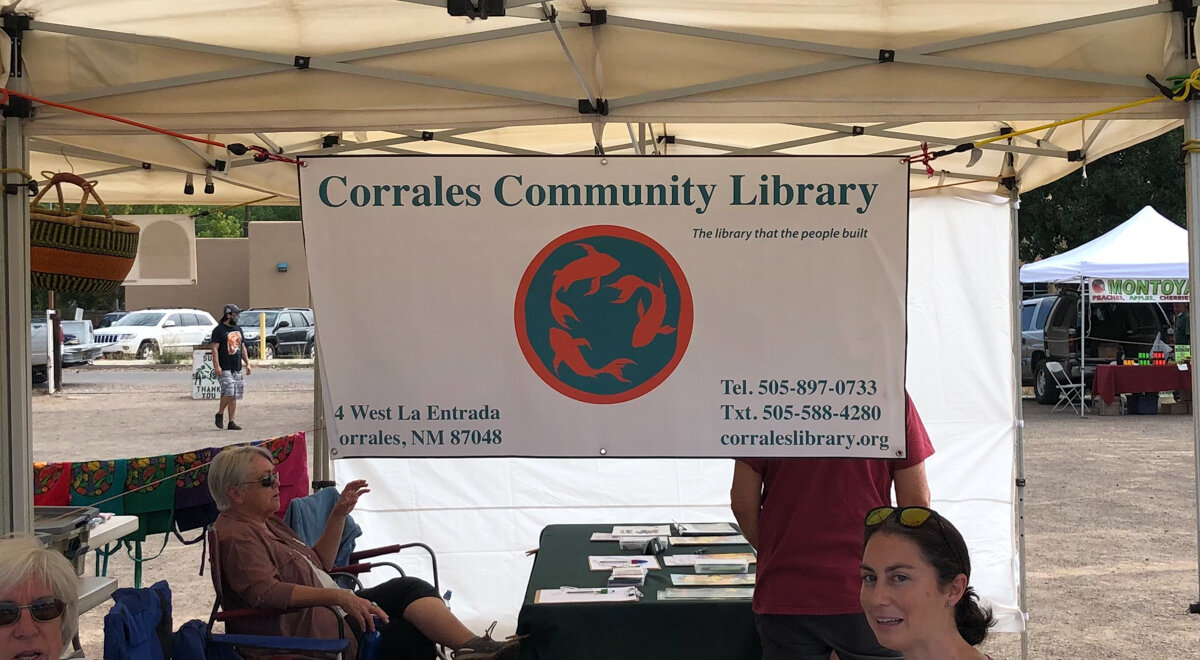

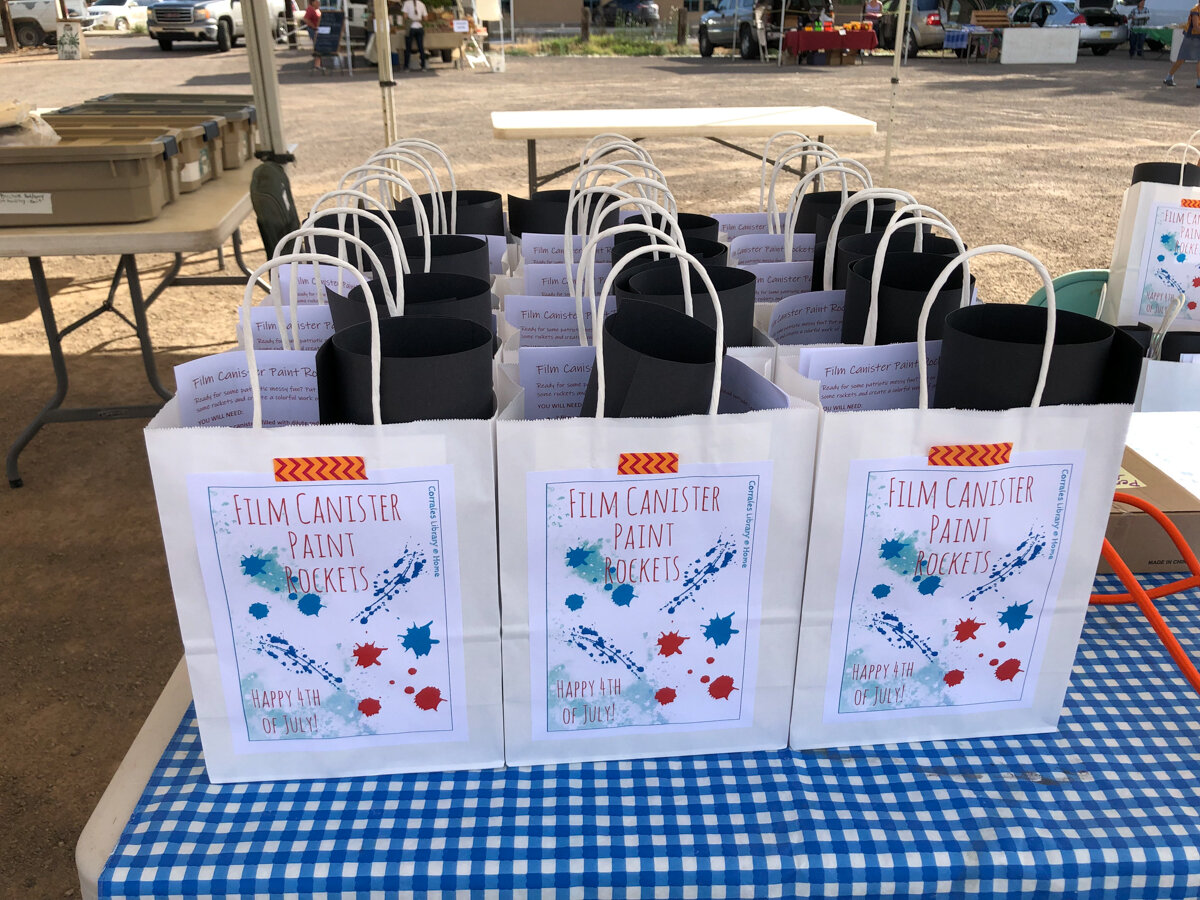

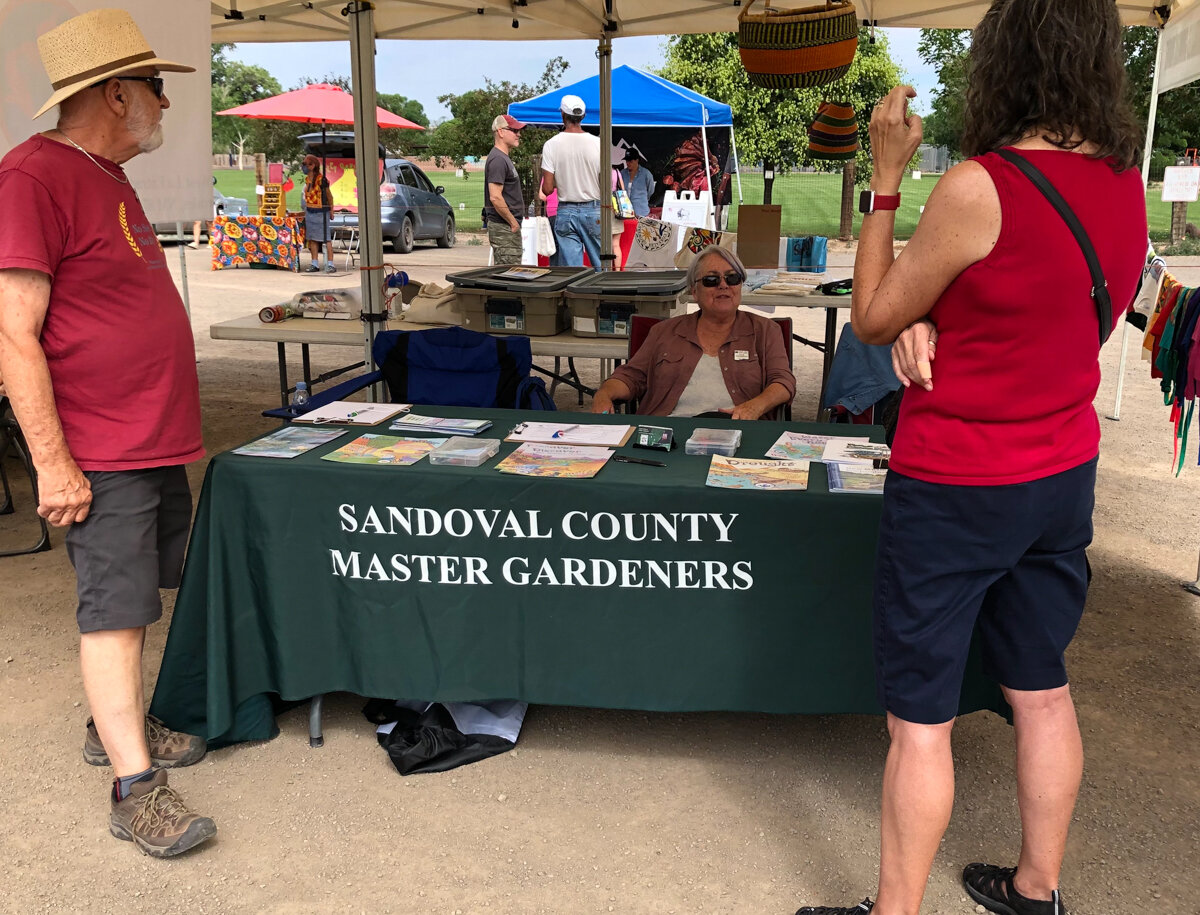
Get Ready for the 2021 Harvest in New Mexico!
April 21, 2021 - Provided by the New Mexico Farmers Marketing association
As we get ready for the start of the season, it’s a nice reminder to see when we can expect different foods at the Market. Have a look at the 2021 Harvest Calendar, provided by NMFMA. This is also a useful reminder of when you should be stocking up your freezer!
Preserve the Harvest: Canning and Pickling
AUGUST 13, 2020 - WRITTEN BY LAURA FIORI
Seasonal produce is everywhere in Corrales. If you are like most people, preserving means canning, which can seem complicated and time consuming if you’ve never tried it. But there are easy and fast ways to have locally grown veggies all winter. This article focuses on Pickling, and Canning. Check out our previous article about Freezing and Dehydrating, too. It’s time to stock up and preserve during the peak of the season!
Pickling yields delicious results and doesn’t take long. A “quick pickle”, also known as refrigerator pickles, can be eaten within hours or days of preparation. Quick pickles are simply sliced or whole vegetables that are placed in a jar and pickled in a brine of vinegar, water, salt, desired spices, and sometimes sugar, and then placed in the refrigerator. Lots of delicious recipes are available online, here is a recipe to get you started!
Canning uses glass jars with pressure-sealing lids to preserve the canned contents using a water bath or pressure canner. The water bath method can be used to preserve foods such as high-sugar jams and jellies or acidic tomato products and pickles. Water bath canning is accessible to most homeowners.
Pressure canning is required for non-acidic foods including many vegetables like beans and potatoes. A pressure canner (as opposed to a pressure cooker) is required for canning these items, and you should get some water-bath canning experience before purchasing and using a pressure canner. Canning is alive and well in Corrales, and all over!
If you’d like more information, NMSU and Penn State have published some great articles to get you started! For other ways to preserve the harvest, check out this website, under the ‘Food Preservation’ section.
Preserve the Harvest: Freezing and Dehydrating
REPOSTED FROM AUGUST 25, 2019 - WRITTEN BY LAURA FIORI
Harvest time! This is a great time of year to dive into preserving some fresh veggies for the winter ahead. Seasonal produce is everywhere in Corrales. If you are like most people, preserving means canning, which can seem complicated and time consuming if you’ve never tried it. But there are easy and fast ways to have locally grown veggies all winter. This month, we will spotlight 4 simple ways to preserve the harvest: Freezing, Dehydrating, Pickling, and Canning. So, stock up and preserve during the peak of the season!
First method for preserving the harvest - Freezing
Fresh and local produce is everywhere in Corrales! Freezing is the most commonly used food preservation technique. In fact, most people use this method to store leftovers while forgetting that it can also be used to preserve fruits and veggies. Gather the appropriate containers for storing your produce such as plastic freezer bags and storage containers. You’ll also need some freezer space and a reliable electric supply.
Freezing for long-term food storage does require some know-how to get the best results. Before freezing, fruits and vegetables need slicing and blanching. Blanching is submerging a fruit or vegetable in boiling water for a couple of minutes to partially cook it. This stops the ripening process and is easy to do. Then package and freeze! Freezer burn is caused by your produce being exposed to air so make sure to squeeze the air out of baggies. Also, freeze containers quickly to reduce the formation of large ice crystals inside. Complete instructions can be found online:https://extension.psu.edu/lets-preserve-freezing-vegetables
Second method for preserving the harvest - Dehydrating
Dehydrating is fast and fun! Dried food can come in many forms — from fruit leathers to dried veggies — and they all can be dried using an electric dehydrator, the oven, or the sun! Look online for solar food dehydrator plans if you want to use this method.
The secret to good dehydrating is heating the food so the moisture is eliminated quickly enough to not affect food flavor, but not at a temperature that is hot enough to cook the food. Air circulation is also important as it carries the moisture away from the food. Electric food dehydrators can be purchased for between $30 to $260 (we’ve used less expensive models with good results). You can also use your oven to dehydrate fruits and vegetables at about 140F (leave the oven door open to allow moisture to escape – electric ovens only). Check online for oven dehydrating times: https://extension.psu.edu/lets-preserve-drying-fruits-and-vegetables-dehydration
Watch for information on Pickling and Canning coming soon!
Market Basket Demo September 8th During First Responder Appreciation Day!
AUGUST 25, 2019 - WRITTEN BY LAURA FIORI
Join us on Sunday, September 8th at the Growers Market for a special activity accompanying First Responders Day. You may have seen the colorful, handcrafted market baskets for sale at the Market Shop during the Growers Market. These baskets are created by women artisans in Ghana, Africa. On Sunday the 8th, we will be unpacking a new shipment. This is your chance to get wet! The baskets arrive flattened from transport. We will have a large tub of water for soaking the natural grass baskets and then YOU can form them into their beautiful, round shape - a fun hands on experience for you and the kids! A large selection of colors and sizes will be available, so grab a basket to take home full of fresh fruits and veggies. Keep it handy for every time you come to the Market and everywhere else you shop!
The market baskets are made from elephant grass by women weavers in a Fair Trade Cooperative in Ghana, Africa called African Market Baskets. The market chose to offer these lovely handmade baskets to support hundreds of women who are paid a fair wage for their weaving. There are wonderful photographs of the artisans and the weaving process at www.AfricanMarketBaskets.com. The women also receive school supplies and health care for their families through the affiliated nonprofit www.WeavingHope.org. What a great cause to support AND make it easy and stylish to carry home your locally grown food! Remember, that these baskets are not just for the Growers Market! You can carry them around the village and beyond for all your shopping.
First Responders Day is when we get to meet and thank the local firefighters, police officers and village staff for their commitment and service. Let’s show them we appreciate having a safe place to live, work and raise our families by saying hello. Bring the kids for a closeup look at a fire truck and brush truck, and we may even get a visit from a rescue helicopter!
Special thank you to the fire department for supplying the water to soak the market baskets.
Impact of Food Security on our Communities
Below is an interesting article about what our food system may be moving towards and what this could look like after the COVID-19 pandemic slows. Food security is always an important issue, and we're grateful for having you--our community--support the Market and the farmers that produce our food.
Full article: https://www.greenbiz.com/…/vision-post-pandemic-food-system…
Excerpts from GreenBiz:
Food system security is an issue that demanded attention before the outbreak of COVID-19 and the virus has only exacerbated the need for real changes in our food systems.
Global pandemics disrupt the effectiveness of our food chains in a system where climate change is already putting pressure on food production. Revolutionizing our food systems to emulate the structure of a microgrid is one great solution for creating resilient food chains.
Food microgrids are not just beneficial for food security. These systems reduce transportation costs and emissions and help people move back towards eating in a more sustainable, seasonal way. They also more easily support regenerative farming technologies that maintain environmental health and boost output. Lastly, they are economically beneficial for small local farmers, rather than large and unsustainable corporations.
Much in the same way that decentralized computer grids allowed for the development of cell phones and the way we get our electricity is transitioning from large centralized power plants to smaller decentralized renewable plus storage based networks, our food systems need to localize.
We’ve seen small craft breweries take over beer markets and the number of farmers markets has grown by 6 percent since 2014. Even large retailers like Whole Foods are turning to local suppliers. The growing farm to table movement is also a manifestation of localizing food systems.
Technologies like indoor farms, vertical farming, and lab-grown meat will also help facilitate this transition and make it easier to grow foods in difficult climates.
Basing our food systems around a microgrid design builds community, increases food supply resilience, benefits the environment, and boosts local economies. We at The Optimist Daily love to share stories about improving our food systems. Microgrids are another great solution for strengthening our food chains and our communities.
Happy Hippies and Microgreens!
March 30, 2020
One cup of broccoli microgreens has the nutrition of 50 cups of broccoli! Wow! This is news to most of us. Logan Romero ate organic and lived a healthy lifestyle. He had experienced the benefits of this firsthand and wanted to share this way of living. Then he read an article about how microgreens are a nutritional powerhouse, and he and his business partner, Katie Wilson, realized they had found their calling. Within a month the new farmers were well on the way to growing microgreens in a spare bedroom at Logan’s place and Happy Hippies Urban Farm was born.
Microgreens are the sprouts of vegetables that we usually eat full grown. The sprouts of the plant contain the condensed vitamins and minerals before they are disbursed into the vegetable as it grows. That is how 1 cup of radish microgreens has the nutrition equivalent to 40 cups of full grown radishes!
As the Happy Hippies second season at the Growers Market begins, the duo offers 6 or 8 types of microgreens each week and rotates through popular favorites and new varieties. Try microgreens on salads, cheese and crackers, burritos, potato and veggie salads, meats - experiment! Logan and Katie grow microgreens year round with grow lights. Microgreens are particularly handy in the seasons when we don’t have as many choices of fresh vegetables, but don’t miss out on their nutrition year round!
You can find Logan at the Growers Market each week, and you can also setup with the Farm directly to get on a schedule of two orders per month. You can order or reserve your favorite varieties by calling or texting Logan at 505-410-8036. You can meet him or Katie at the Growers’ Market to pick up your order, at Corrales Bistro, or they will deliver to your home. Don’t miss out on this easy, tasty way to boost your nutrition!
Gus Wagner, 7/9/1932 - 2/15/2020
February 15, 2020
This weekend, Corrales lost one of the greats, Gus Wagner (7/9/1932 - 2/15/2020). Gus kept the family tradition of farming going strong, which started over 100 years ago when the Wagner family bought land in Corrales. The family business has continued to thrive, and now includes land in Corrales and Socorro, a farm stand, participation at multiple growers’ markets, and special events that everyone enjoyed. Wagner Farms grows corn, apples, chile, cantaloupes and pumpkins, and without the dedication to farming that Gus had, none of this would have been possible. He will be missed.
Stoney Island Garden Brings you Evergreens to Enjoy Year-Round
January 26, 2020 - Written by Laura Fiori
We remember how beautiful evergreens are at Christmas time. Dan Nedoba of Stoney Island Gardens can help us enjoy them year-round. Dan raises three kinds of pine trees that do well in our climate: Afghan, Austrian and Pinion, and has been selling them at the Growers’ Market for 4 years.
Dan's love of pines started in his childhood in Michigan and continued during years of walking the Colorado forests as an adult collecting firewood. After retiring from the VA, Dan wanted to start a small business that allowed him to keep active and to do something he really enjoys. With 300-400 pines growing in containers in his side yard, this venture is ideal.
After buying seedlings from the Forest Service, Dan raises the trees for several years, watering and adding fertilizer as needed. Dan is also a licensed Nursery Grower which means his property is inspected yearly to ensure it is free of the pests that young pines may be susceptible to. A small dose of pesticide watered into the pot ensures the tender shoots of the young pines are pest-free during this vulnerable growth phase.
Dan can help you pick the right pine for your location and desired purpose. Trees can remain potted or be replanted in the ground. Dan knows which of his stock are the fastest growers and which best tolerate cold and low water. He says most people choose pines to add greenery and beauty to their landscape, create a visual barrier and/or act as a wind screen. A deep root system means these pines are well suited to stay upright in our windy weather and they typically live to 80 years old.
Even with all Dan's expertise and support, if you are still nervous about keeping your new additions alive, Dan offers a one year, one time, free replacement. Dan believes that the more trees (appropriate to our climate) we plant, the better. Trees clean air and soil toxins, take in carbon dioxide and release oxygen, and the varieties he sells are low water users. Dan sees planting trees as a win-win for people and the environment and he gets real satisfaction from the part he's chosen to play. Stop by the Growers’ Market and chat with Dan about these beautiful and beneficial trees.
Visit Dr. Deb's Herb & Aromatherapy Apothecary on December 22nd
DECEMBER 14, 2019 - Written by Laura Fiori
In addition to fruits and vegetables, the Growers’ Market has other wonderful offerings! On Sunday, December 22nd, 11AM-1PM, visit Dr. Deb's Herb & Aromatherapy Apothecary for seriously natural body care products — all of her products contain herbs that she grows and gathers herself! And Dr. Deb offers a free art card with every gift you purchase (she's an artist too!).
Dr. Deb has been making balms and lotions using the principles of Traditional Chinese Medicine for over 10 years. In this ancient tradition, all disease is considered to be the result of being out of balance. Dr. Deb chooses the appropriate plants and herbs for each potion she creates to help restore balance in the body, thereby addressing the root of the issue, not just the symptoms. She was convinced of the power of this approach after using a cream on her feet that cured her plantar fasciitis pain in one application!
After growing the most common ingredient in her products, aloe vera, and carefully growing and gathering the indigenous medicinal herbs and wild crafted ingredients for her potions, Dr. Deb prepares them by hand in her kitchen. A few of her products are: Heavenly Skin (for dry, lifeless skin), Tranquility Cream (for insomnia, anxiety, irritability), Headache Relief (for all types of headaches including migraines), Grumpy Skin Cream (for rough scaly skin, cracked hands and feet, and rashes) and the popular Dragon Balm (anti-inflammatory and analgesic for all types of pain - muscle, joint, bruising).
Dr. Deb's most successful product has been ‘Itch, Itch, Itch’, which soothes itching skin due to eczema, Psoriasis, chemo side effects, scars and healing from burns or rashes. Itching from these sources has traditionally been difficult to address with western medicine. Dr. Deb is very gratified to offer natural, effective relief for this and many other types of discomfort. Custom formulas are also available at no additional cost when Deb has all the ingredients.
Dr. Deb offers a money back guarantee for people cautious about trying something so... natural. Dr. Deb considers it her life's work to ease suffering and promote wellness using these effective, natural products that she carefully crafts herself. Stop by her table at the next Growers’ Market to chat, sample some products, and take advantage of her expertise. You can be her next success story!
A New Meaning to ‘Fresh Cup of Coffee’!
November 15, 2019 - Written by Laura Fiori
While we can't grow coffee beans in Corrales, we can roast them here and enjoy the amazing taste of a fresh roasted cup. Zach and Courtney Smith are sharing their love of coffee by roasting carefully sourced organic, fair trade and specialty grade beans on Corrales Road behind Las Ristras. In addition to being able to grab a cup or bag at their roastery (8AM-3PM every day but Tuesday), Candlestick Coffee Roasters will be at Winter Market on Sundays November 24 and December 22 from 11AM-1PM.
Candlestick roasts in small batches so Zach can carefully craft the flavor of each bean variety into something extra special. The flavor of the green coffee beans from such places as Brazil, Costa Rica, Peru and Mexico are affected by the altitude at which they grow and the soil (similar to terroir in wine) in addition to the type of coffee plant. Roasting the beans adds depth and complexity to the flavor. Information about each variety is carefully detailed on the Candlestick Coffee website. The Papua New Guinea coffee is described as "clean and delicate, with tart citrus fruit acidity, and smooth mouthfeel. Subtle toffee, floral and sugar cane sweetness." Coffee lovers - local roasting of specialty beans is a whole new world!
If you’re intrigued by the process in addition to the flavors, get in touch with Zach to see which day he is roasting this week so you can stop by to watch. You'll get to hear the 'first crack' of the beans, smell the delicious aroma, and watch how the balancing of temperature and timing make coffee roasting an art in addition to a science. Whether you prefer whole bean or ground, bring back your bag for a refill and save a $1. Bring your mug to the shop to sample a rotating selection of coffee. These sustainability practices benefit everyone!
To attend a coffee tasting and compare several varieties at once, sign up on Candlestick Coffee's email list to attend the roasting and tasting event coming soon. Coffee is also available by the gallon for pick up or delivery for office and social events. This new business is another wonderful addition to Corrales. Fill 'er up!
Dive into the Growers Market!
October 15, 2019 - Written by Laura Fiori
We all know that shopping at the Growers Market is the best way to get fresh, local and nutritious fruits and vegetables. It empowers us by shopping in alignment with our values, keeps the small farming tradition alive and flourishing, and invests in the future of our community. Yet sometimes... it can still be a challenge! It can be hard to let go of our habits at the chain grocery stores, even when we want to.
Whether you are just getting started at the Growers Market or want to increase your purchases, here are 3 tips to ease the transition. And don't forget your market basket or cloth bags (available for purchase if needed)!
1. Go slow. You don't need to switch all your purchases at once, or ever! Just start! If you are a complete newbie, go with $20. Yes, you have to go Sunday morning or Wednesday afternoon (check the calendar). This is different than all-hours access -- and you'll find that food shopping can be a lovely ritual instead of a chore! Walk around until you see a fruit or veggie that you typically buy. Walk up to the table, greet the farmer or ask a question. Buy some!
2. Flow with variety. It feels different to shop for fruits and vegetables that are in season instead of having everything available all the time. Consider eating seasonally for your main vegetable and fruit of the day to start. It can be fun to change up your favorite recipes throughout the year. And, if you have an absolute favorite, stay with it!
3. Value your food. Sometimes we forget that the food we eat is an investment in our health. Our food may be the most important place to pay for quality. For some people, it can be hard to let go of the mentality that we should always pay the lowest price we can find. Skipping one or two impulse purchases at the chain store should cover any price difference to buy local. Plus, fresher food will store better and last longer, a better value in the long run! Think of it as paying for the true cost of food: the cost of our neighbor's devoted efforts and greenspace in our community. Your food dollars matter!
Check back for info on 'Preserving the Harvest' during this bountiful time of year!
Free Private Well Water Testing at the Market, October 20th
October 7, 2019 - Written by Laura Fiori
It is important to test the suitability of your well water quality for its intended use, whether it be agricultural or livestock watering, or drinking water for your home.
Bring a water sample to be one of 150 homeowners to receive a free water quality test at the Corrales Growers Market on October 20th from 9am to noon. Testing is available for wells serving homes not connected to a public water utility for residents of Corrales and surrounding communities in Sandoval County. This free service is offered by NMED and NM-DOH.
Testing your private well's water quality on a regular basis is an important part of maintaining a safe and reliable source. The test results allow you to properly address any specific problems of a water supply, if needed. This will help ensure that your water source is being properly protected from potential contamination, and that appropriate treatment is operating properly.
Collect your water sample according to steps listed below. The testing will check for: Electrical conductivity, Sulfate, pH, Nitrate, Fluoride, Arsenic, and Iron. At the event, information will also be collected about your well (i.e., well construction information). All information is voluntary.
HOW TO COLLECT A WATER SAMPLE:
• Fill a clean glass or plastic container without any strong odors, with at least a quart or a liter (i.e., 32oz) of your well water.
• If the home has a whole house filtration system, collect the water at the well head prior to any filtration or softener systems if possible.
• Let the water run 2-3 minutes before collecting the sample.
• Fill the container with water as close to the time of testing as possible.
Preserve the Harvest, Freezing and Dehydrating
August 25, 2019 - Written by Laura Fiori
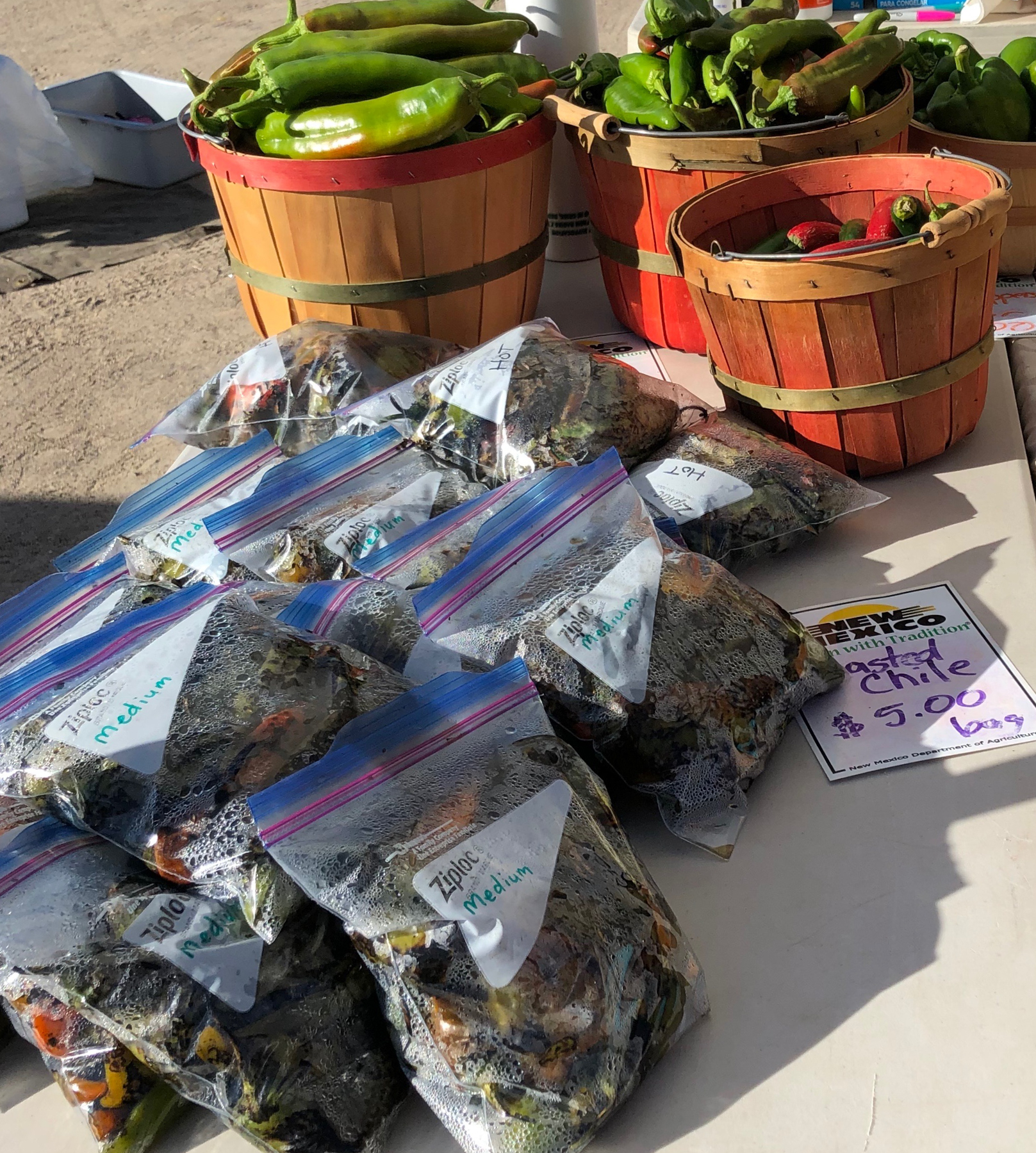
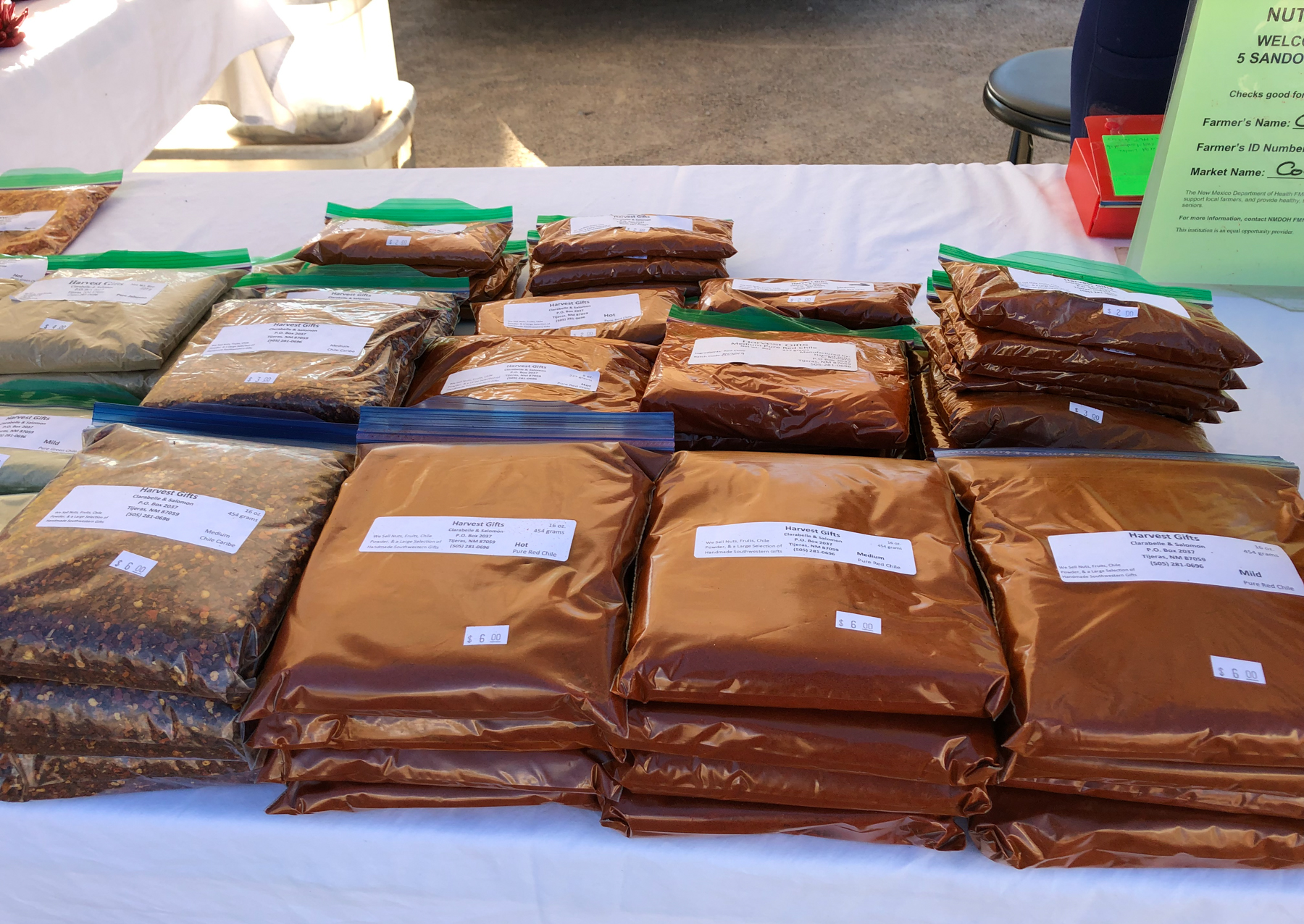
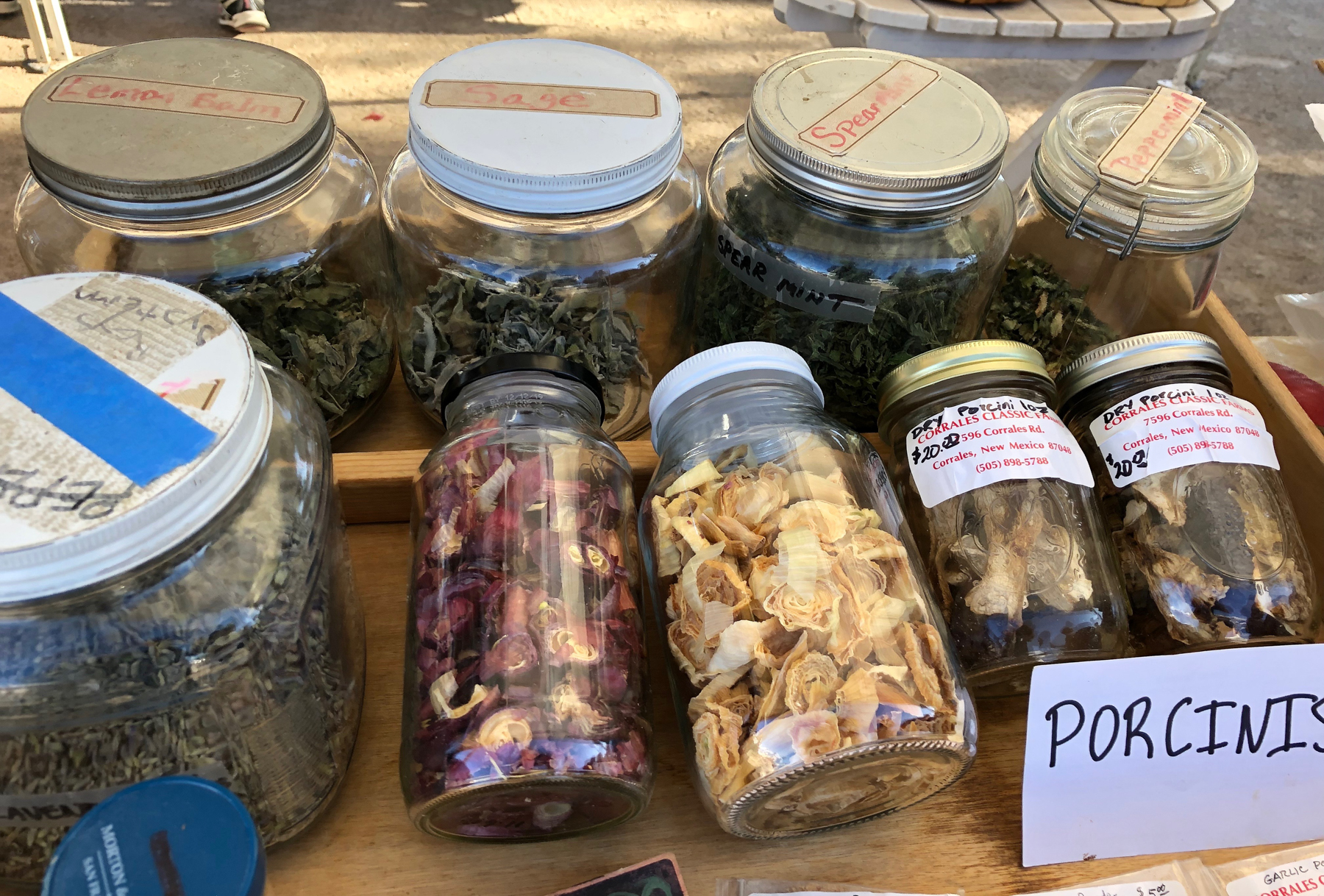
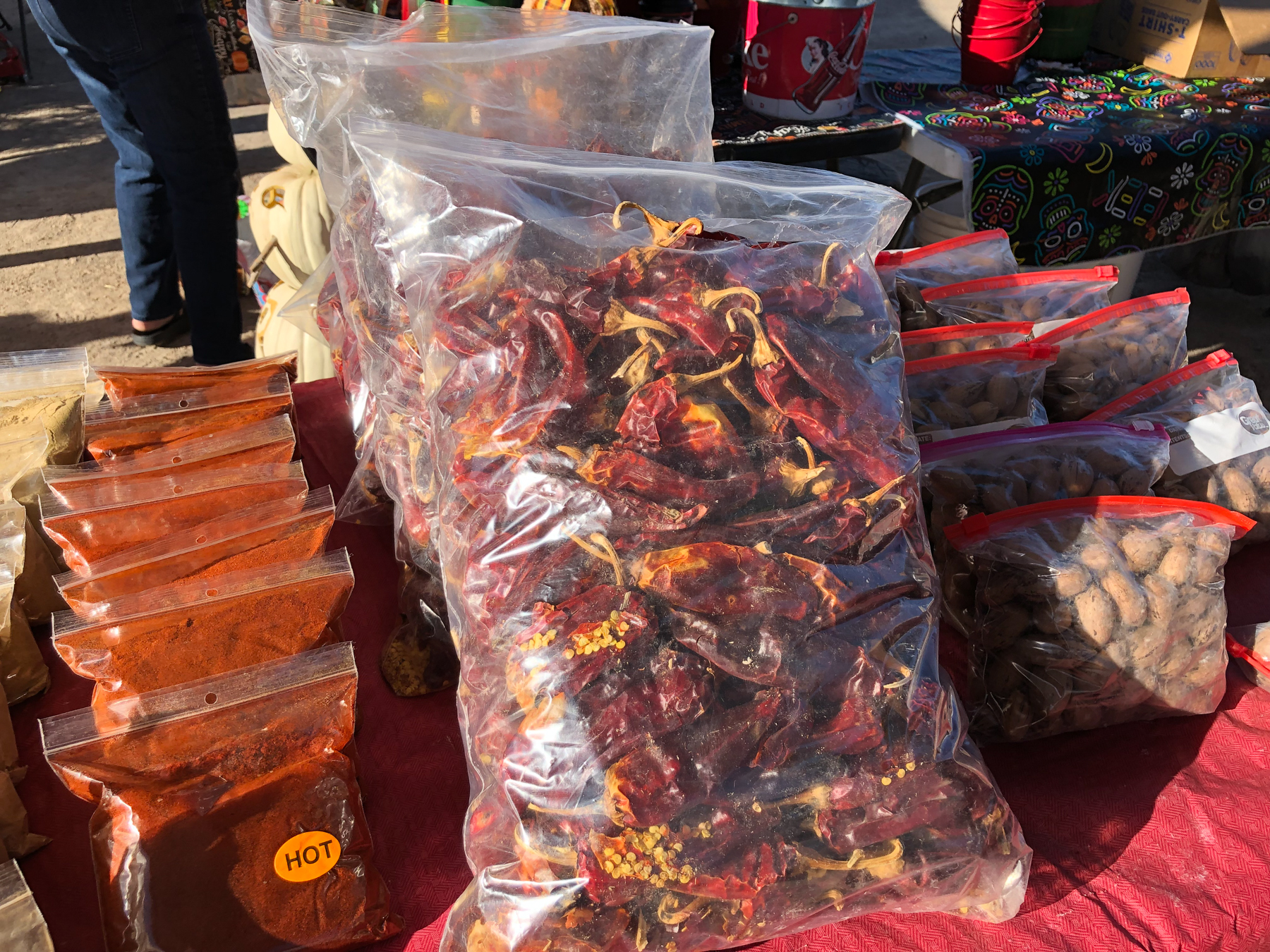
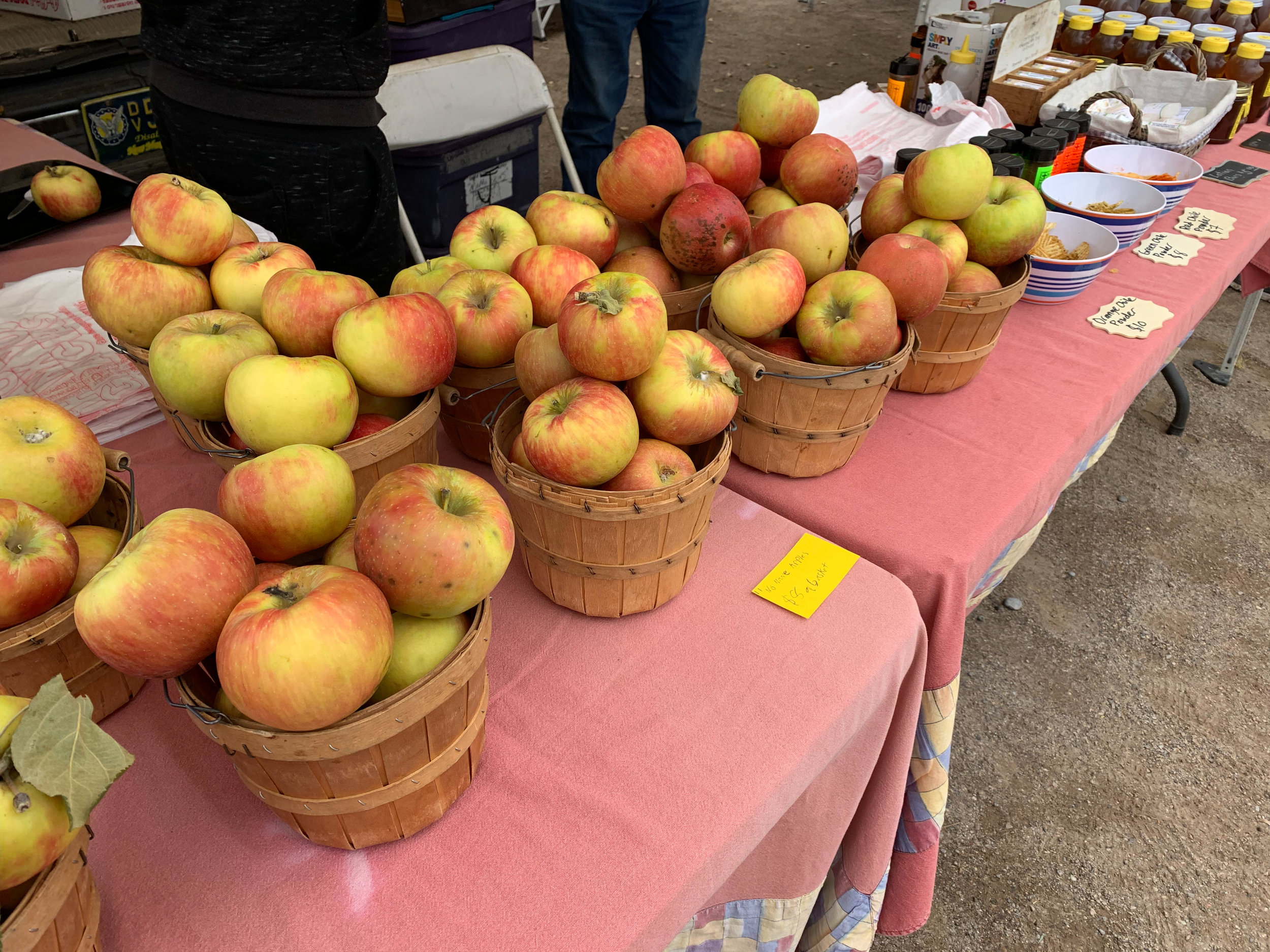
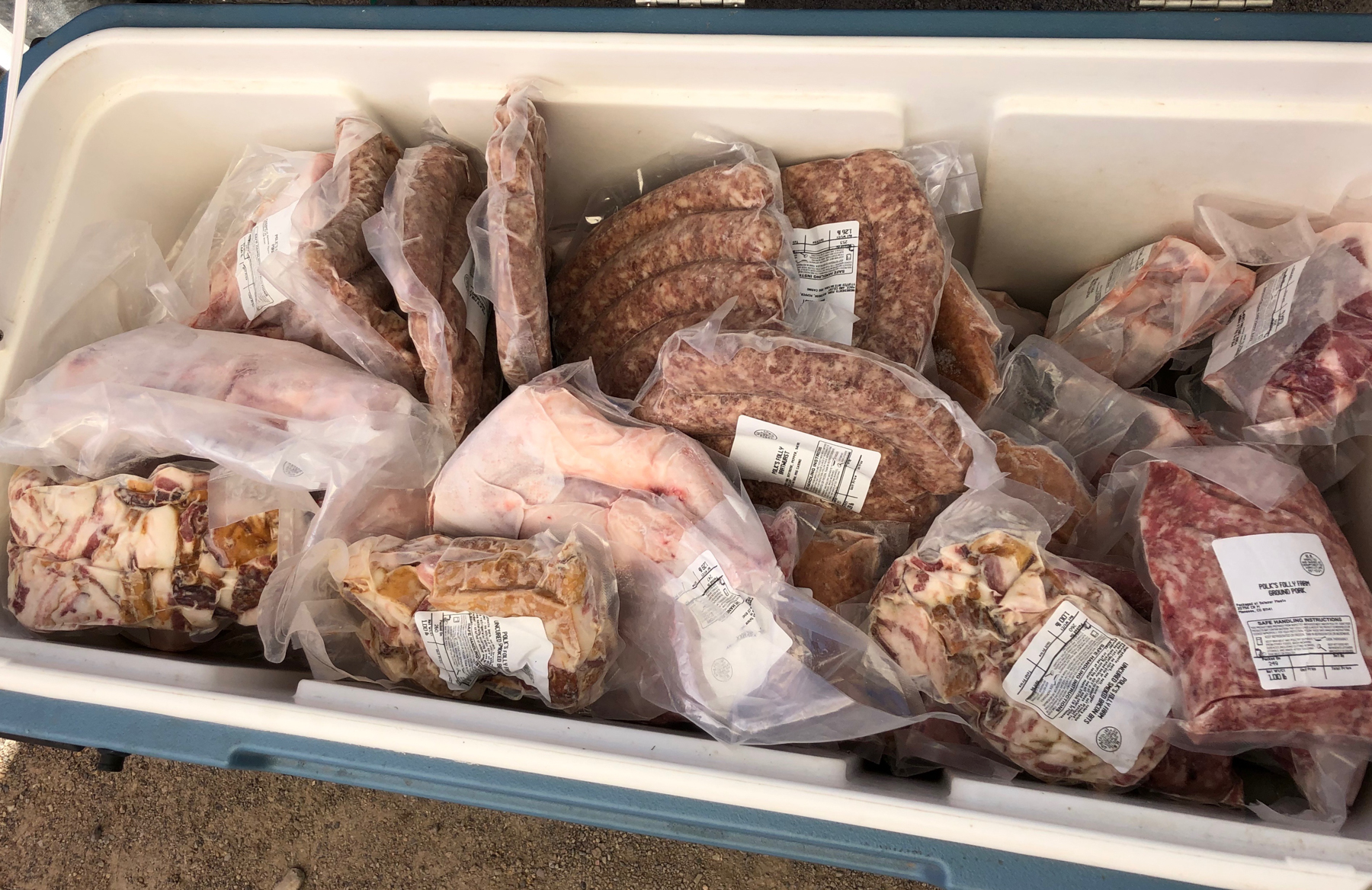
Harvest time! This is a great time of year to dive into preserving some fresh veggies for the winter ahead. Seasonal produce is everywhere in Corrales. If you are like most people, preserving means canning, which can seem complicated and time consuming if you’ve never tried it. But there are easy and fast ways to have locally grown veggies all winter. This month, we will spotlight 4 simple ways to preserve the harvest: Freezing, Dehydrating, Pickling, and Canning. So, stock up and preserve during the peak of the season!
First method for preserving the harvest - Freezing
Fresh and local produce is everywhere in Corrales! Freezing is the most commonly used food preservation technique. In fact, most people use this method to store leftovers while forgetting that it can also be used to preserve fruits and veggies. Gather the appropriate containers for storing your produce such as plastic freezer bags and storage containers. You’ll also need some freezer space and a reliable electric supply.
Freezing for long-term food storage does require some know-how to get the best results. Before freezing, fruits and vegetables need slicing and blanching. Blanching is submerging a fruit or vegetable in boiling water for a couple of minutes to partially cook it. This stops the ripening process and is easy to do. Then package and freeze! Freezer burn is caused by your produce being exposed to air so make sure to squeeze the air out of baggies. Also, freeze containers quickly to reduce the formation of large ice crystals inside. Complete instructions can be found online:https://extension.psu.edu/lets-preserve-freezing-vegetables
Second method for preserving the harvest - Dehydrating
Dehydrating is fast and fun! Dried food can come in many forms — from fruit leathers to dried veggies — and they all can be dried using an electric dehydrator, the oven, or the sun! Look online for solar food dehydrator plans if you want to use this method.
The secret to good dehydrating is heating the food so the moisture is eliminated quickly enough to not affect food flavor, but not at a temperature that is hot enough to cook the food. Air circulation is also important as it carries the moisture away from the food. Electric food dehydrators can be purchased for between $30 to $260 (we’ve used less expensive models with good results). You can also use your oven to dehydrate fruits and vegetables at about 140F (leave the oven door open to allow moisture to escape – electric ovens only). Check online for oven dehydrating times: https://extension.psu.edu/lets-preserve-drying-fruits-and-vegetables-dehydration
Market Basket Demo September 8th During First Responder Appreciation Day!
August 25, 2019 - written by laura fiori
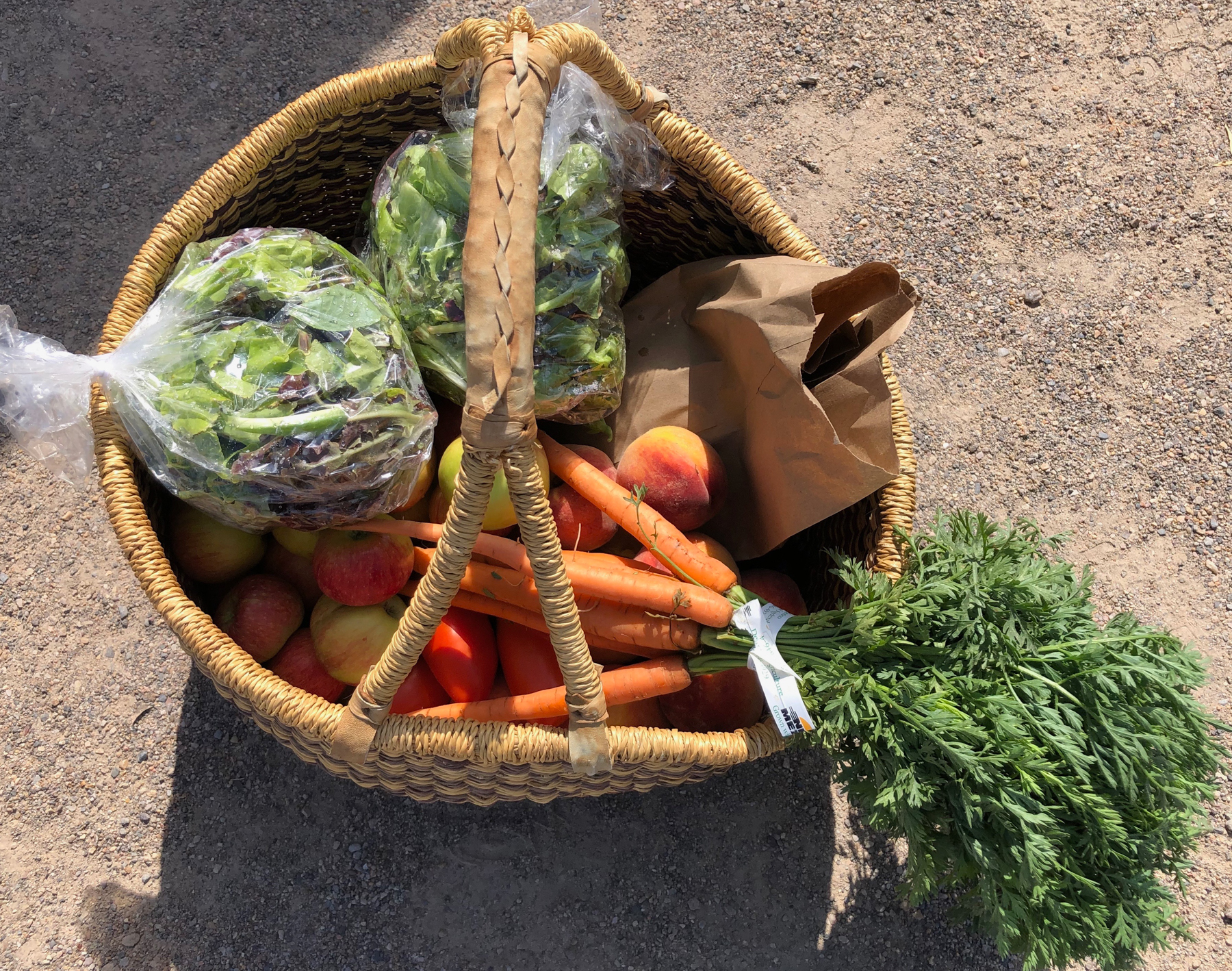
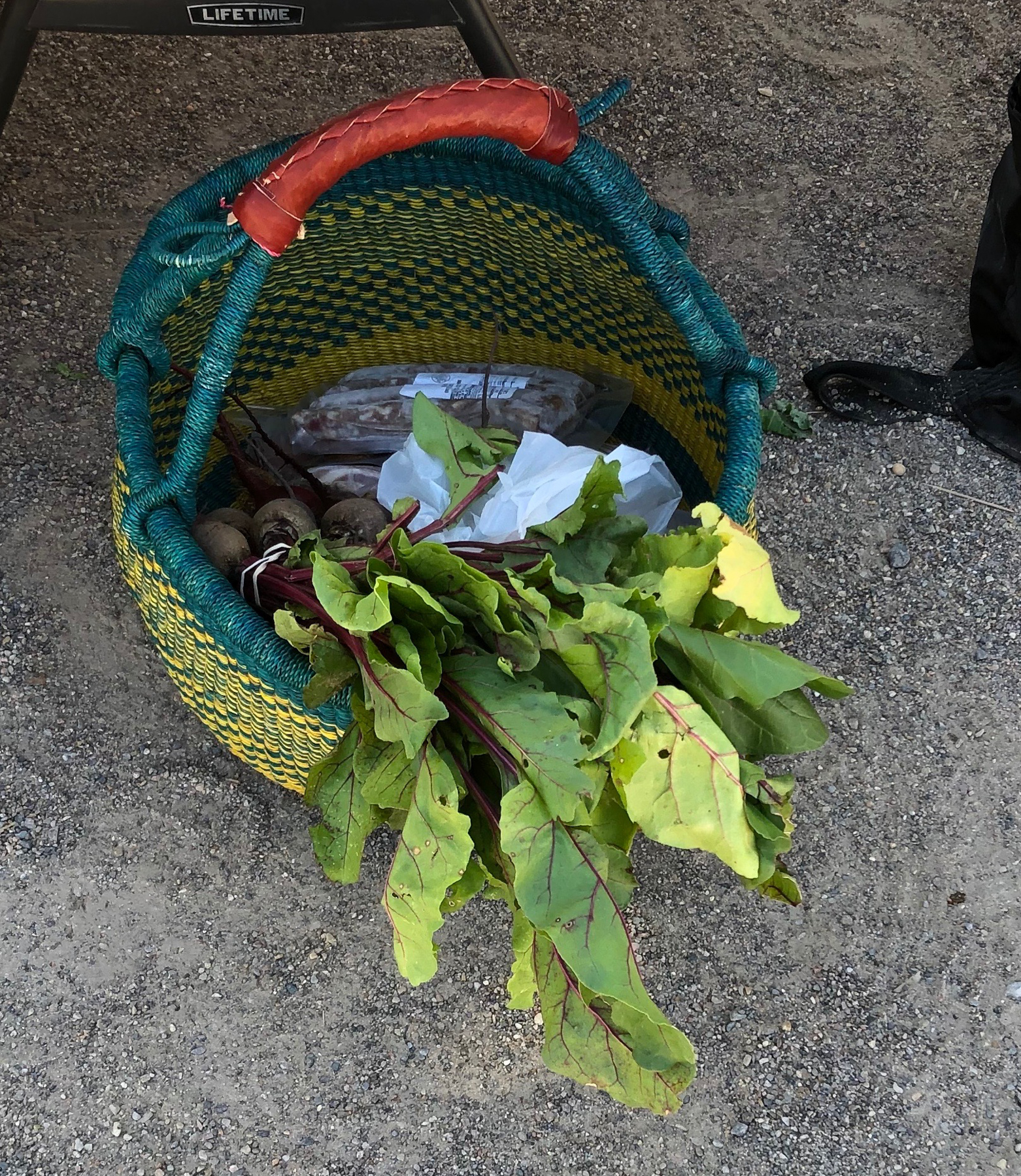
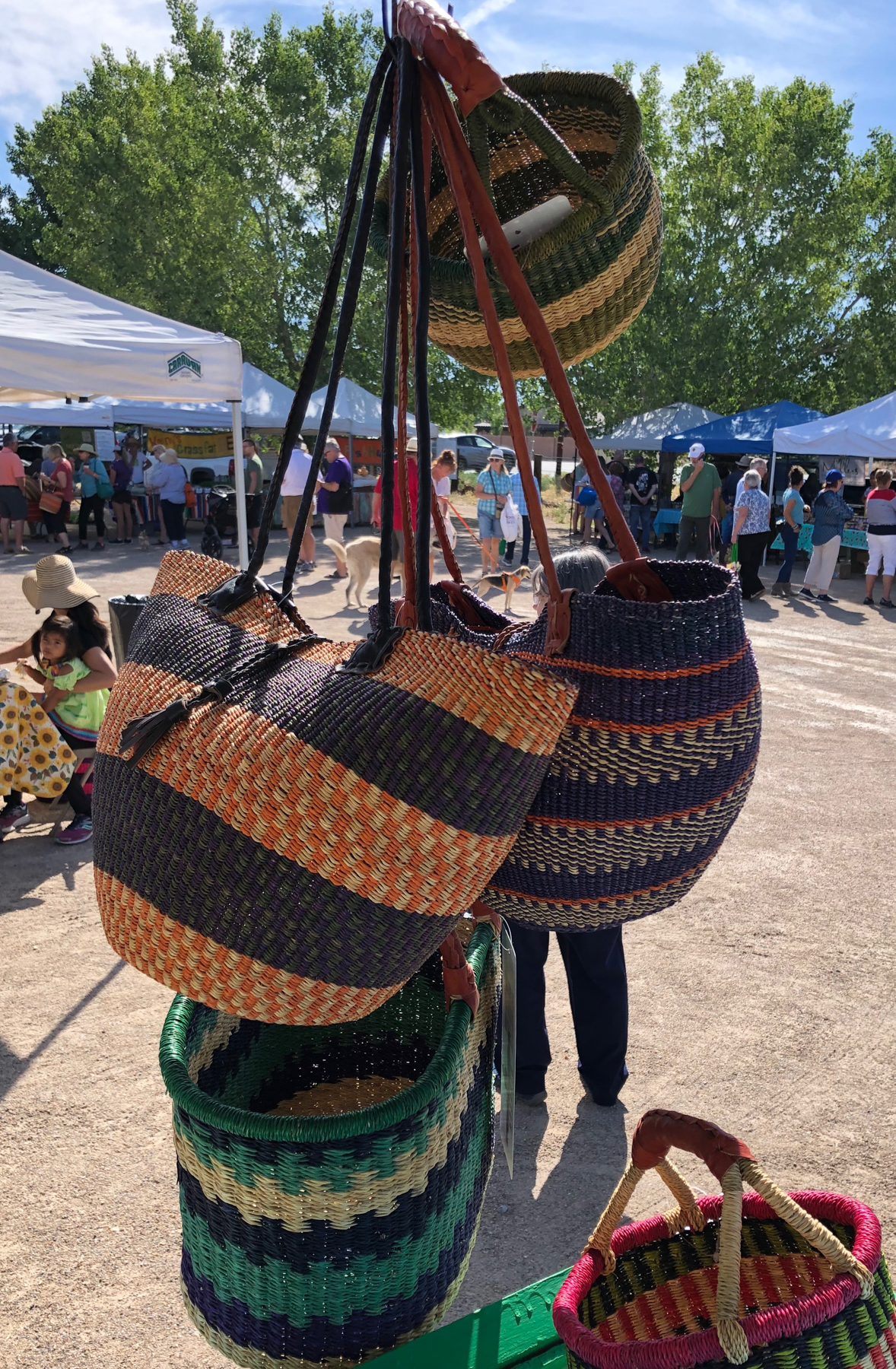

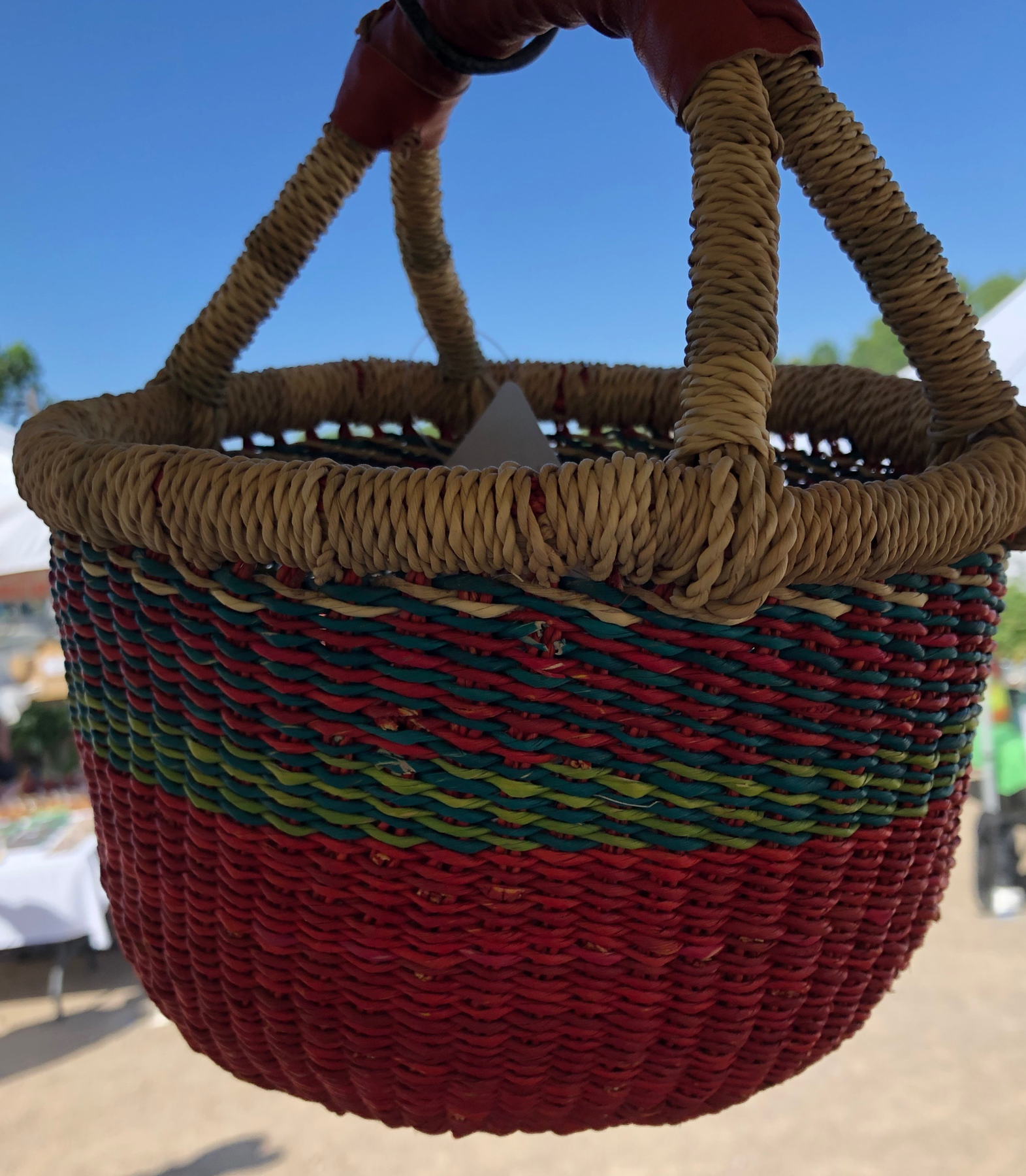
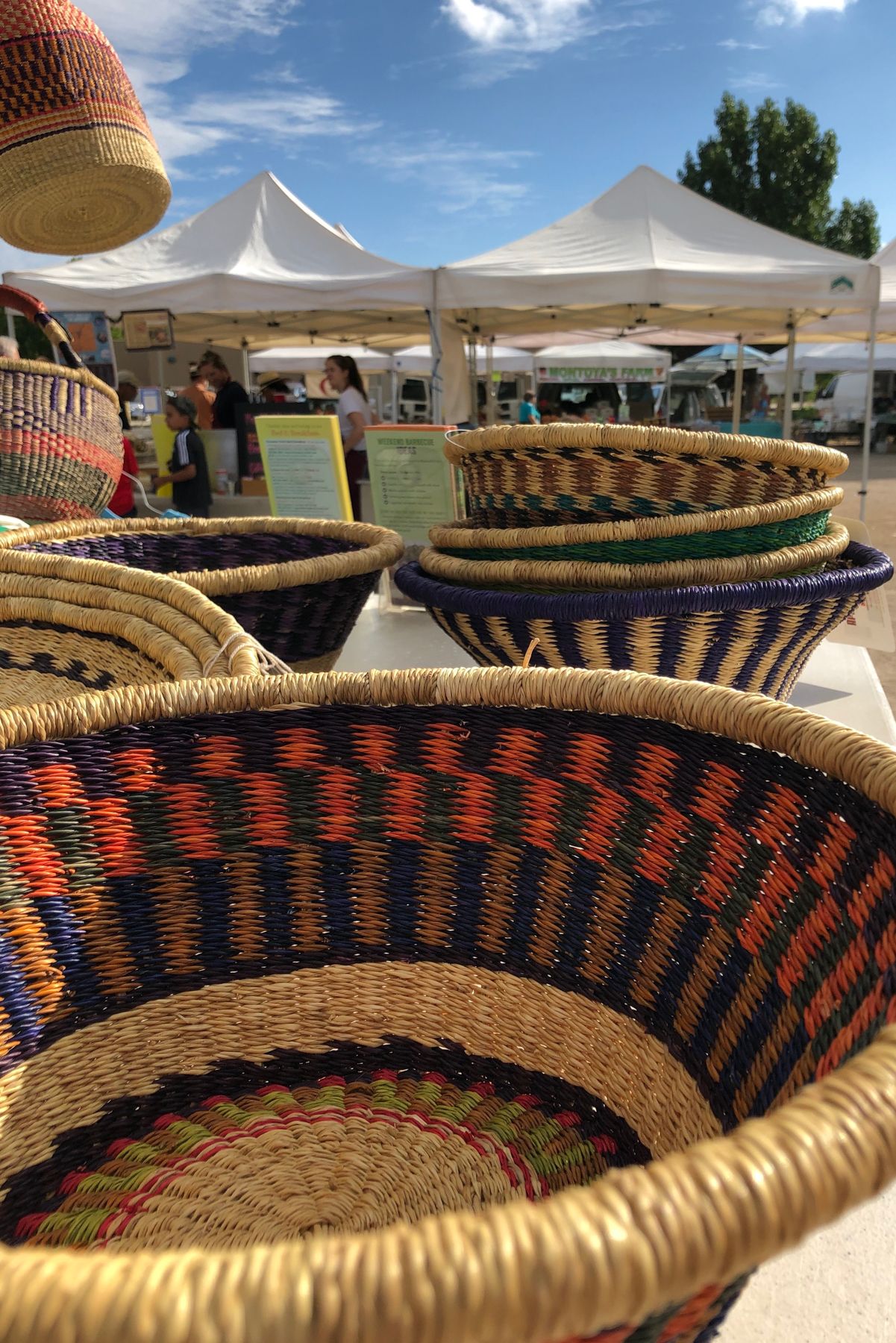
Join us on Sunday, September 8th at the Growers Market for a special activity accompanying First Responders Day. You may have seen the colorful, handcrafted market baskets for sale at the Market Shop during the Growers Market. These baskets are created by women artisans in Ghana, Africa. On Sunday the 8th, we will be unpacking a new shipment. This is your chance to get wet! The baskets arrive flattened from transport. We will have a large tub of water for soaking the natural grass baskets and then YOU can form them into their beautiful, round shape - a fun hands on experience for you and the kids! A large selection of colors and sizes will be available, so grab a basket to take home full of fresh fruits and veggies. Keep it handy for every time you come to the Market and everywhere else you shop!
The market baskets are made from elephant grass by women weavers in a Fair Trade Cooperative in Ghana, Africa called African Market Baskets. The market chose to offer these lovely handmade baskets to support hundreds of women who are paid a fair wage for their weaving. There are wonderful photographs of the artisans and the weaving process at www.AfricanMarketBaskets.com. The women also receive school supplies and health care for their families through the affiliated nonprofit www.WeavingHope.org. What a great cause to support AND make it easy and stylish to carry home your locally grown food! Remember, that these baskets are not just for the Growers Market! You can carry them around the village and beyond for all your shopping.
First Responders Day is when we get to meet and thank the local firefighters, police officers and village staff for their commitment and service. Let’s show them we appreciate having a safe place to live, work and raise our families by saying hello. Bring the kids for a closeup look at a fire truck and brush truck, and we may even get a visit from a rescue helicopter!
Special thank you to the fire department for supplying the water to soak the market baskets.
